 Sign in
Sign in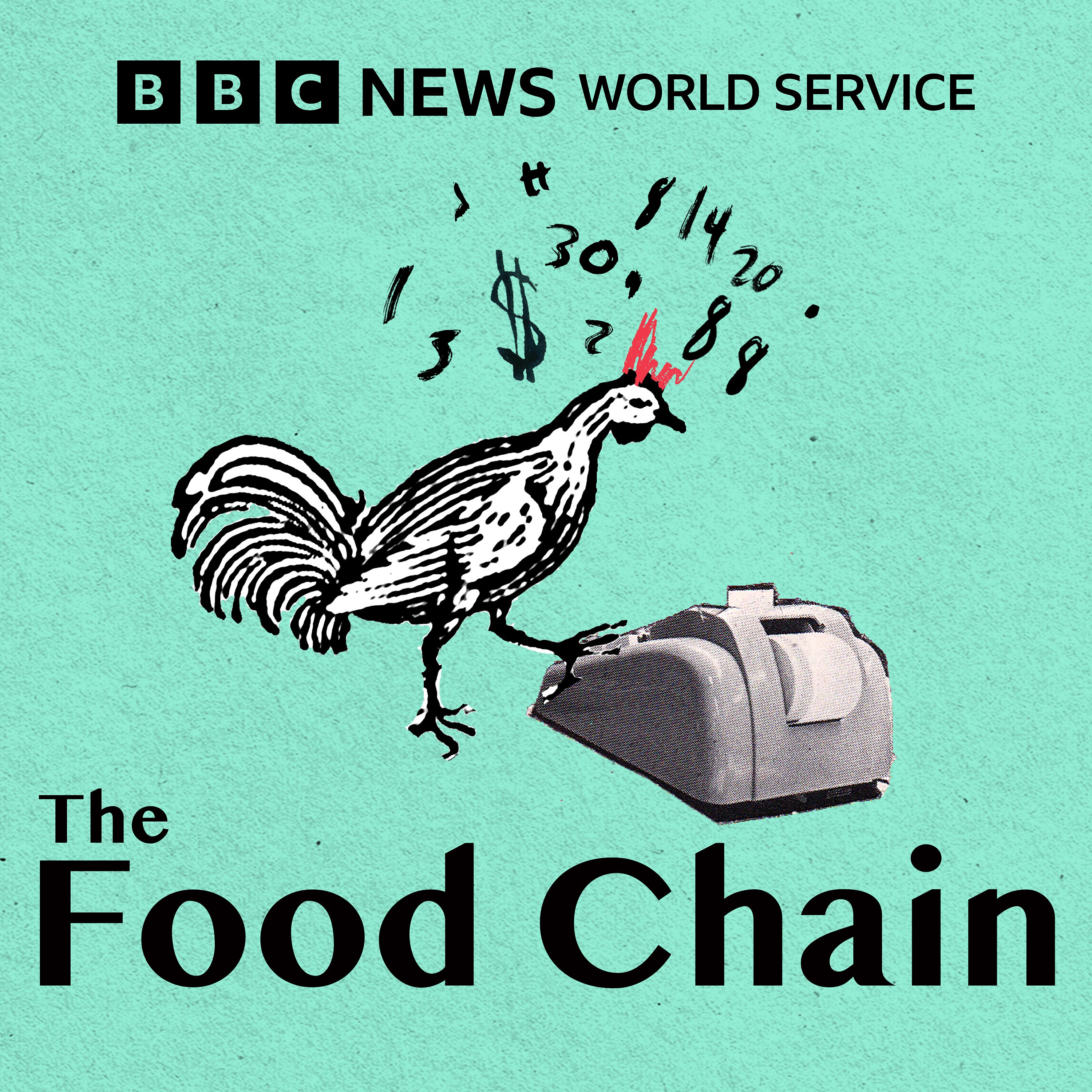
Arts
BBC World Service
The Food Chain examines the business, science and cultural significance of food, and what it takes to put food on your plate.

We're 10!
We’re celebrating ten years of The Food Chain with some of our favourite programme moments from the past decade. Fishing to stay alive, chopping onions in remembrance, and tasting people’s names – these stories and more tell us something about our relationship with food and how it helps us connect with one another. If you would like to get in touch with the show, please email: [email protected]: Ruth Alexander (Picture: A chocolate birthday cake with number 10 candles on top. Credit: Getty Images/BBC)
28:5621/11/2024

Just vanilla
Dull? Boring? Plain? Vanilla is a byword for something which is ordinary or standard. In this programme Ruth Alexander finds the story of the popular spice is anything but normal. Originating in Mexico it’s travelled the globe and taken over, and is now one of the most valuable commodities available. It’s gone from being highly sought after and the height of luxury – even serving as an aphrodisiac for Mesoamericans and a European monarch - to ubiquitous and considered “regular”. Despite its reputation there is still a lot to appreciate about this complex flavour, and fans in one ice cream parlour are keen to make sure it isn’t overlooked. Presenter: Ruth Alexander Producers: Nina Pullman and Hannah Bewley (Image: A vanilla bean and flower. Credit: Getty Images)
26:2814/11/2024

How work changed lunch
How do our work habits shape what we eat? In this programme Izzy Greenfield discovers the history of the workplace lunch and the ways in which society has reshaped it. Historian Megan Elias of Boston University in the US explains how lunches have evolved from the factories of the 19th century Industrial Revolution to sandwiches eaten at the desk in 20th century offices. Izzy visits an office and co-working space in Manchester, run by Department, a company that operates office spaces in the North of England. Abigail Gunning, Operations Director, explains why it makes sense for the company to open the building’s cafe and restaurant to the public as well as staff. And how does workplace food impact our health? Olivia Beck, registered nutritionist at Food Choices at Work in Cork, Ireland, explains why it’s in employers’ interests to create a healthy food environment for all staff, whether in the office or at home. If you’d like to contact the programme you can email [email protected] Presented by Izzy Greenfield. Produced by Beatrice Pickup. Additional reporting by James Jackson. (Image: a man eating a burger with a glass of juice at his desk in front of a computer screen. Credit: Getty Images/BBC)
29:0807/11/2024

Living with water shortages
Water scarcity is an increasing problem on every continent, according to the United Nations. Around half the world’s population experiences severe water scarcity for at least part of the year, according to a report by the Intergovernmental Panel on Climate Change. Global warming and population growth is expected to make the situation worse, so what is it like to run a home or a business amid water shortages? Ruth Alexander hears from households and businesses in Karachi, Pakistan and Bogata, Colombia, and finds out lessons from Cape Town, South Africa which was said to be approaching ‘Day Zero’ when the taps would run dry in 2018. Ruth explores whether desalination – harvesting drinking water from the sea - could ever offer a sustainable solution.If you would like to get in touch with the show, please email: [email protected] by Rumella Dasgupta and Beatrice Pickup. (Image: people queuing for water in Cape Town, South Africa in 2018. Credit: Bloomberg/Getty Images/BBC)
26:4023/10/2024
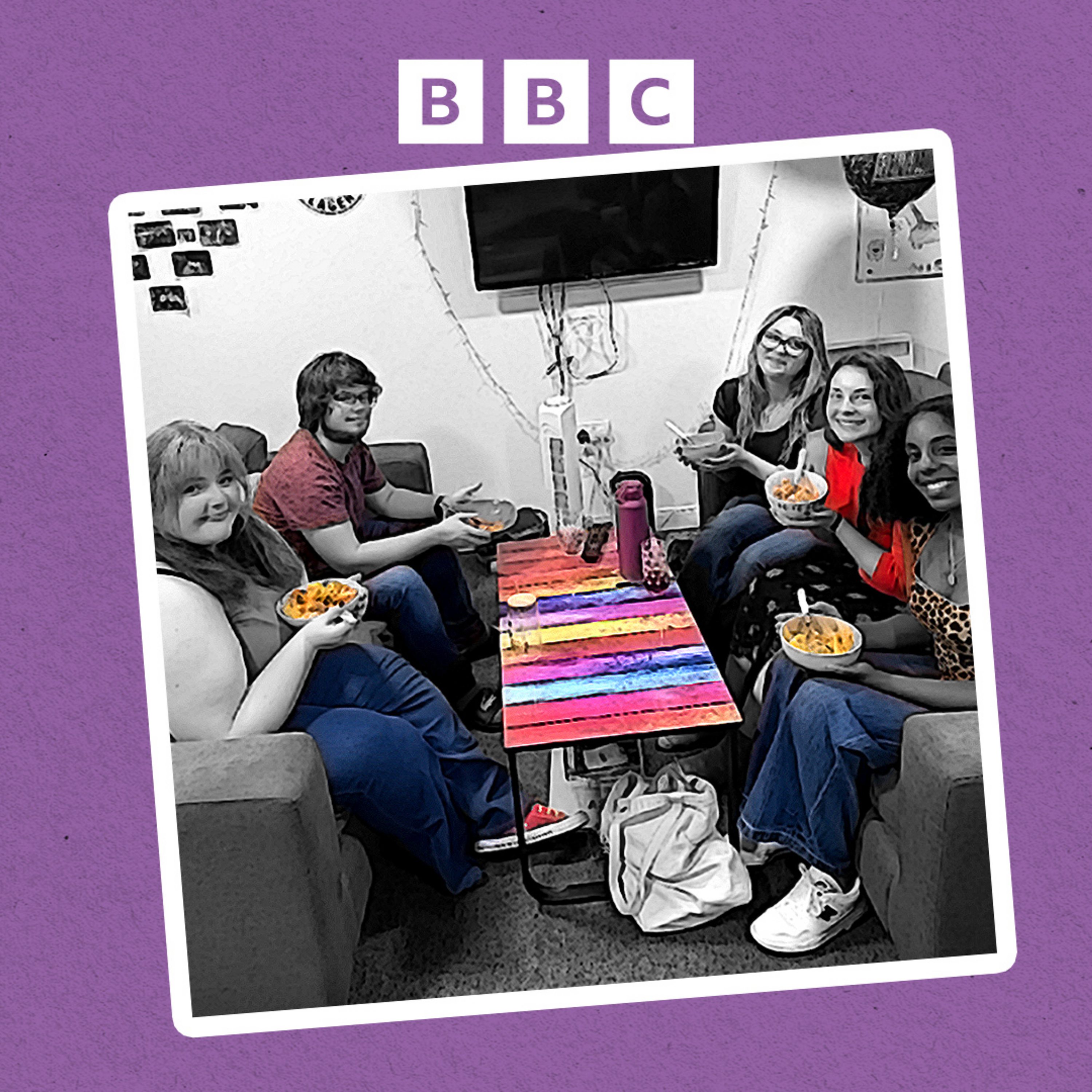
Housemates
Did you share a flat, house or kitchen as a student or professional? Is it the shared meals and conversation that stay with you, or the piles of dirty dishes and missing food? This week Ruth Alexander has a look around shared kitchens all over the world. We hear the good, bad and dirty – and give advice on how to build cooperation in your shared kitchen. Ruth hears from a former housemate what she was really like to share with, as well as a surprise revelation about her unappetising meal of choice.If you would like to get in touch with the show, please email: [email protected] Presented by Ruth Alexander.
Produced by Hannah Bewley.(Image: five students sat on sofas in their shared living space eating a meal they have cooked together. Credit: BBC)
27:3816/10/2024
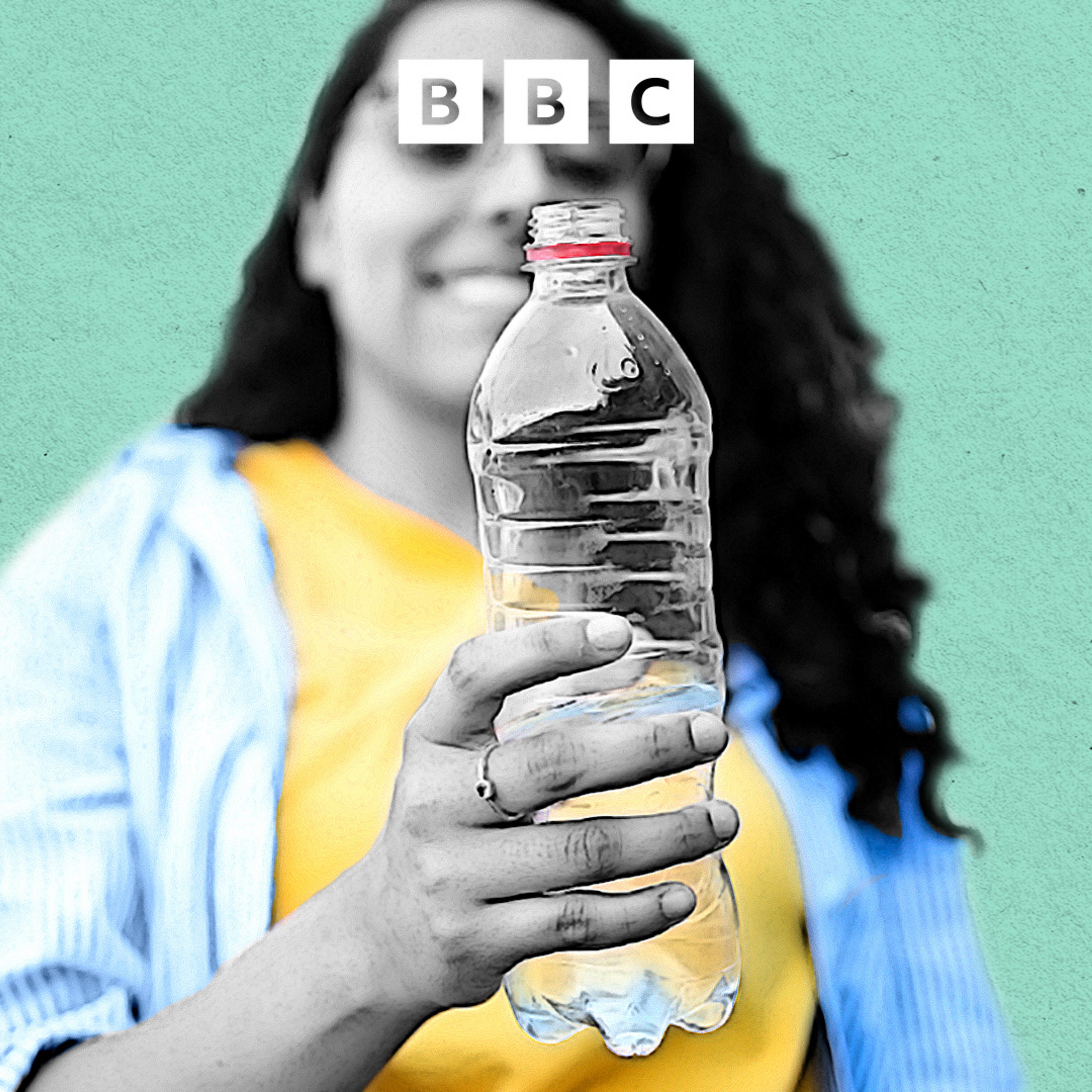
How much water should I drink?
Do you know how much you should drink? Many global guidelines recommend approximately 2 litres a day for women and 2.5 litres a day for men, including food. But scientists say there is actually huge variation in how much each of us need as individuals. Ruth Alexander speaks to Professor John Speakman at the University of Aberdeen in Scotland, who explains why your age, sex, weight, and other environmental factors such as air temperature, humidity and altitude all make a difference. Dr Nidia Rodriguez-Sanchez, senior lecturer at the University of Stirling in Scotland, explains why our bodies need water and what happens if we drink too little, or too much. That happened to Johanna Perry in the UK, she tells Ruth what happened when she drank too much water whilst running the London Marathon in 2018. Presented by Ruth Alexander. Produced by Beatrice Pickup. (Image: a woman holding a plastic bottle of water. Credit: Getty Images/ BBC)
26:2909/10/2024
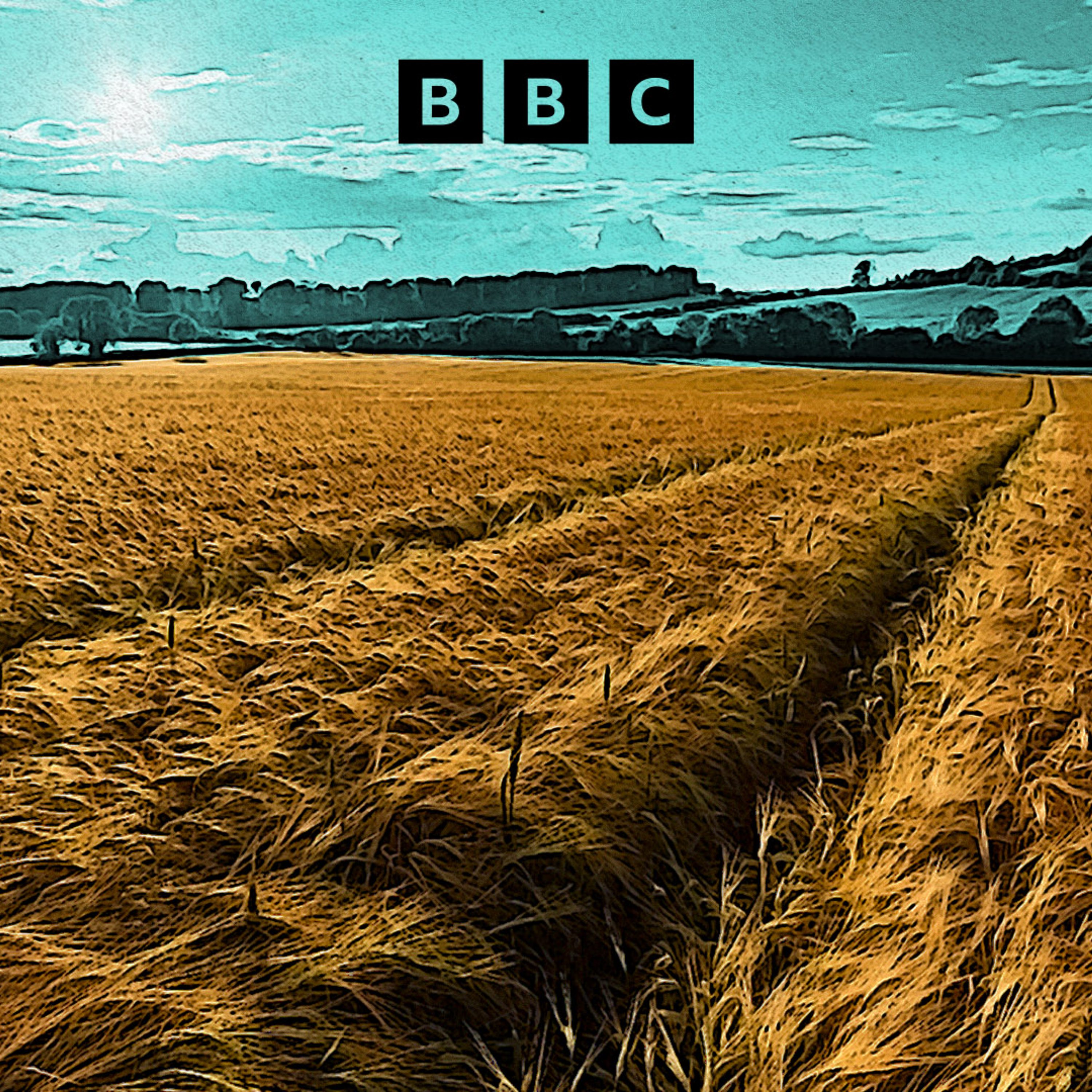
Can you taste a place?
Is it possible to taste a place? A listener wonders whether the French concept of ‘terroir’ can apply to food and, if so, what the science behind it is. Ruth Alexander goes in search of the answer, exploring how growing conditions and practices can develop flavours unique to a location. She also hears about why the value you give to certain flavours might also be cultural. Ruth speaks to a honey expert who is mapping the flavours of the sweet syrup across the world, a barley geneticist working with a high-end whisky brand and visits a vertical farm in Liverpool, UK, to see if foods grown in a closed environment still taste just as good. If you would like to get in touch with the show, please email: [email protected] Presenter: Ruth Alexander Producer: Hannah Bewley (Image: A barley field under a setting sun. Credit: Getty Images)
28:5502/10/2024
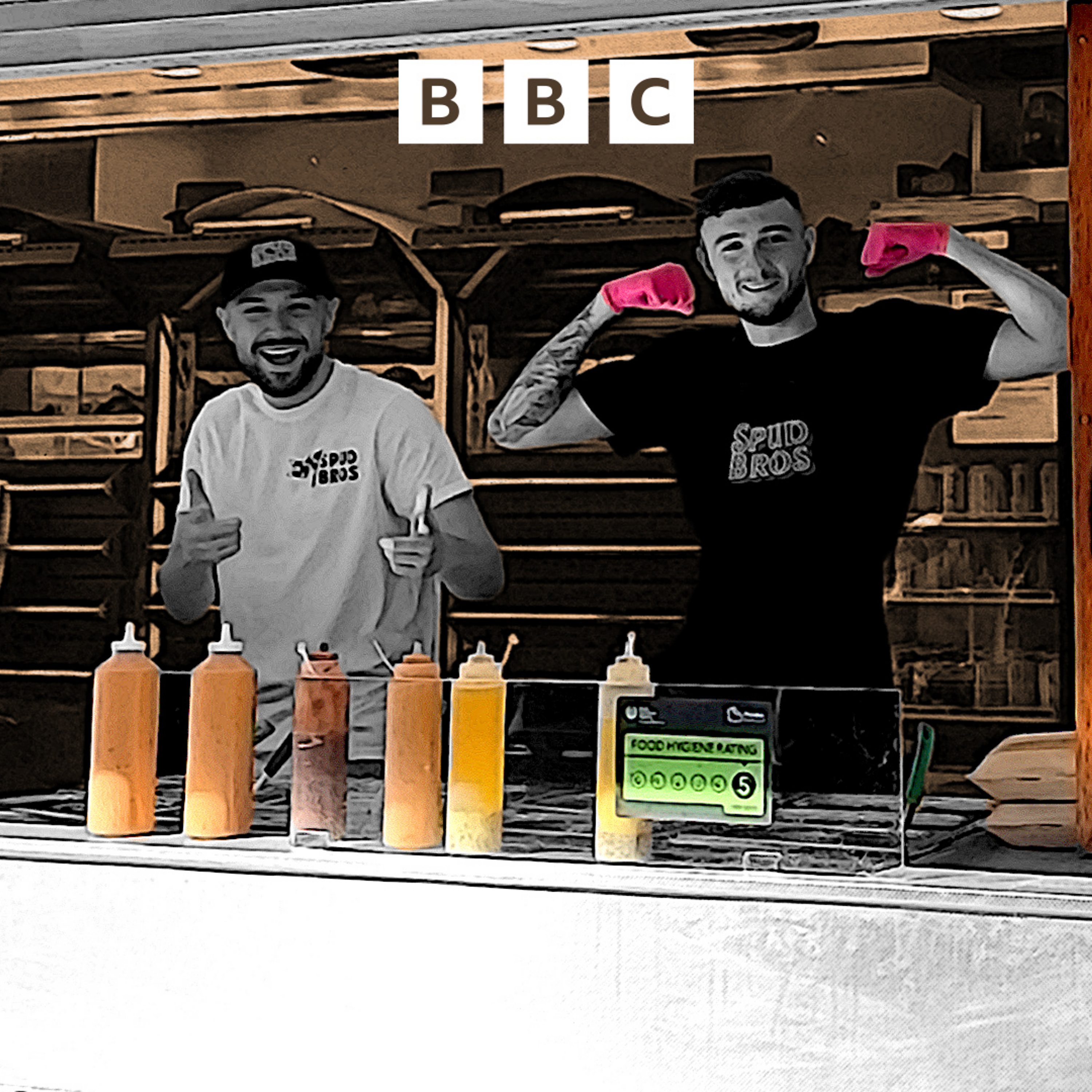
So you want to run a food truck?
Fancy starting a food truck? It can be a way to trial new food concepts and see if your business has potential before committing to a restaurant premises. Ruth Alexander finds out what its really like running a food truck or van. She meets customers queuing for over an hour for the SpudBros van in Preston, north-west England, where brothers Harley and Jacob Nelson have drummed up business for their jacket potatoes on social media. Ruth speaks to Anna Brand who runs a vegan food van Vege Bang Bang in Auckland New Zealand, and sisters Natalie and Samantha Mwedekeli who started Mama Rocks, a food van selling gourmet burgers in Nairobi, Kenya in 2015. Today they have five premises and its time to sell the van that started it all. And Karan Malik talks about his food van SuperSuckers in Delhi, India. He saw the trend take off, but tells Ruth why he decided to get out of the business. If you would like to contact the programme email [email protected]: Ruth Alexander
Producer: Beatrice Pickup
Researcher: Henry Liston(Image: Brothers Jacob and Harley Nelson in their food van selling jacket potatoes in Preston north-west England. Credit: BBC)
26:2825/09/2024

How ‘Bangla Town’ changed a nation's food culture
An Indian curry house is one of the most popular places to go out for a meal in the UK, and is part of British life. But many people do not know their origins lie in what is now Bangladesh, after a wave of migration from there in the 1970s. Devina Gupta traces their history and flavours on Brick Lane in east London, where many people settled and started restaurants. Many have closed over the years, but their legacy lives on. And now more diverse and authentic flavours are becoming popular in the capital and elsewhere. Presenter: Devina Gupta
Producer: Hannah Bewley(Photo: Brick Lane sign with Bangla language version underneath. Credit: BBC)
27:1118/09/2024
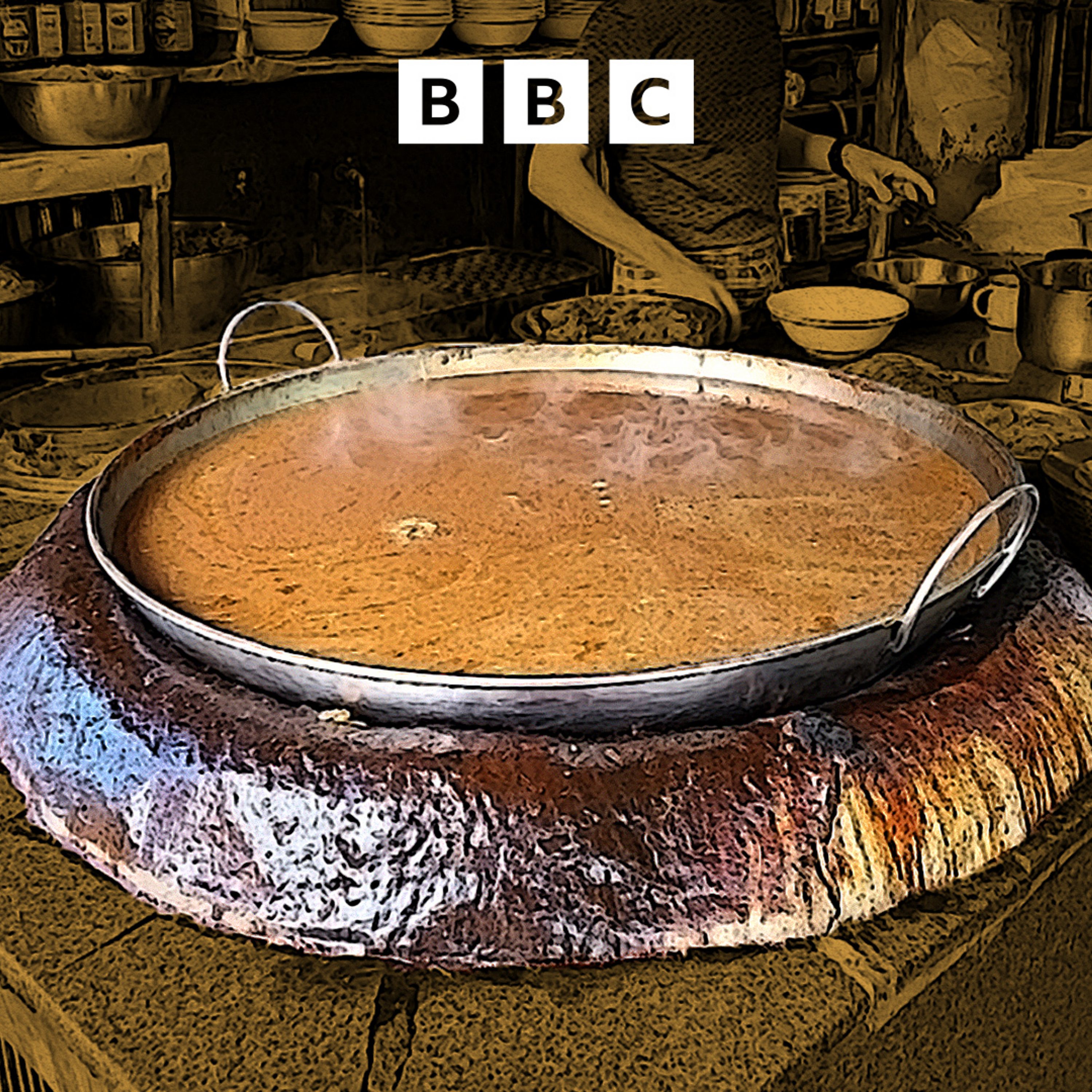
Forever foods
Ruth Alexander learns about ‘forever’ foods - stocks, soups and sourdough starters that can be replenished again and again and used for weeks, months or even years. Ruth hears about a beef soup in Bangkok that has been maintained for 50 years, and she bakes a loaf of sourdough bread using a 69-year-old starter that has been kept going by Hobbs House Bakery in the south-west of England. Cookbook writer Fuchsia Dunlop in London, UK, talks about the tradition of cooking with an ‘everlasting’ broth in Chinese cuisine. Annie Ruewerda in New York in the US was charmed by the idea of a perpetual stew, she kept hers going for two months and it became an online hit – bringing hundreds of strangers to her local park to try the stew and add ingredients. Lee-Ann Jaykus, distinguished professor emeritus and food microbiologist at North Carolina State University in the US explains the food safety rules you need to know if you want to try a perpetual dish at home. Martha Carlin, distinguished professor of history at the University of Wisconsin-Milwaukee in the US helps unravel the claimed historical origins of perpetual stew. And our thanks to World Service listeners David Shirley and Mark Wood for telling us about the oldest dishes they have eaten. Producer: Rumella Dasgupta and Beatrice Pickup
Additional reporting by the BBC’s Ryn Jirenuwat in Bangkok, Thailand(Photo: A huge pot of beef soup in that has been added to over 50 years at a restaurant in Bangkok, Thailand. Credit: David Shirley/BBC)
26:2811/09/2024
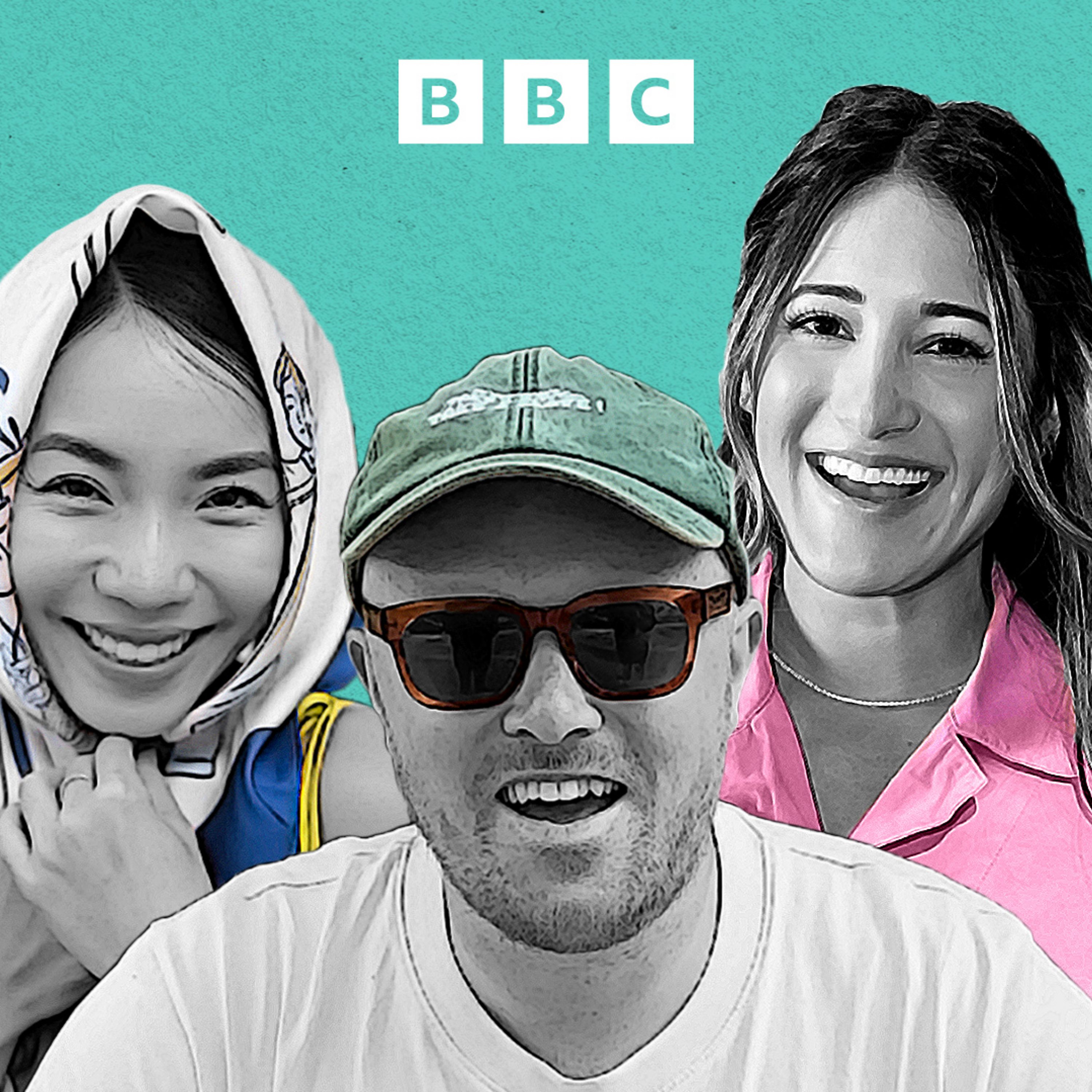
Don't call me an influencer!
Social media is awash with videos of people trying out new recipes at home and exploring the best hidden foodie gems in cities around the world. The stream of content seems endless – so how do the people making these videos keep up? Ruth Alexander speaks to three people in the UK, USA and Vietnam about having six meals before 10am, the relentless pressure to keep up with viral trends, and what they cook for themselves when the camera is off. Tod Inskip, Lylla Nha Vy and Jackie Gebel share the highs and lows of being a “content creator” and why they don’t like the term influencer. Presenter: Ruth Alexander Producers: Hannah Bewley and Elisabeth Mahy If you would like to get in touch with the show, please email: [email protected] (Image: Lylla Nha Vy, Tod Inskip and Jackie Gebel. Credit: Composite BBC)
26:2704/09/2024

How risky is drinking alcohol?
If you’re a light or moderate drinker, the World Health Organization wants you to know that no level of alcohol is safe for your health. But just how big is that risk and might it be one you’re willing to take? And what happened to the idea that a glass of red wine might be good for you? In this programme Ruth Alexander finds out about the studies the guidance has been based on, and the statistical risk of dying from alcohol-related disease. Dr Tim Stockwell, Scientist at the Canadian Institute for Substance Use Research, is the author of a meta-analysis of 107 studies that look at the links between ill health and alcohol. Professor Sir David Spiegelhalter is Emeritus Professor of Statistics at the University of Cambridge in the UK, he explains how we can make sense of risk as individuals. And Anna Tait in the UK, Amelie Hauenstein in Germany, David Matayabas in the US and Bill Quinn in Australia talk about how much alcohol they drink, and what moderation looks like to them. Presented by Ruth Alexander. Produced by Beatrice Pickup. (image: four hands raising pints of beer in a ‘cheers’ gesture. Credit: Getty Images/BBC)
30:5228/08/2024
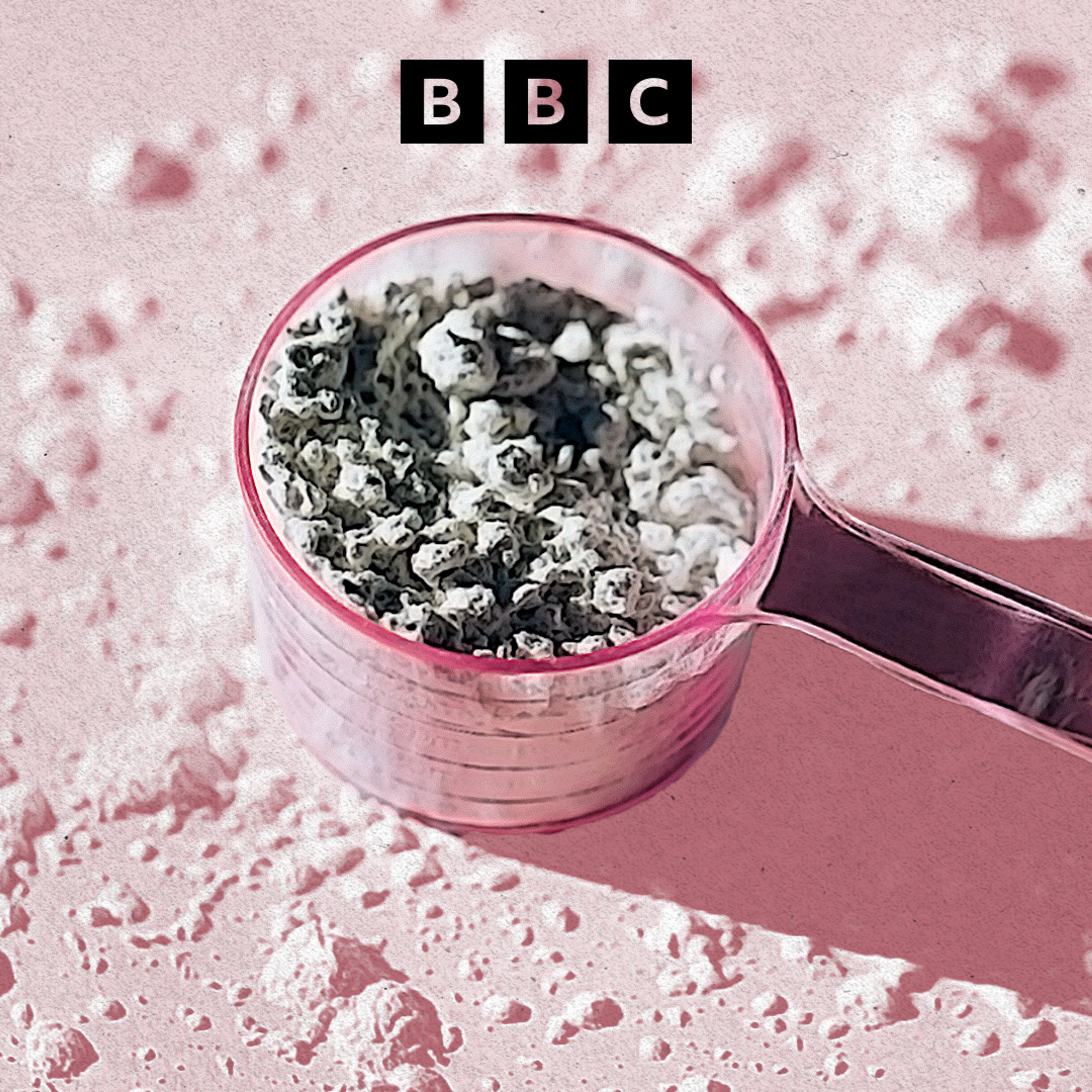
What does collagen do for you?
Is it worth taking collagen? With cosmetic companies and A-listers claiming it can slow the effects of ageing, the market for collagen supplements is booming. How sure is the science though? Ruth Alexander speaks to experts about what we do and don’t know about what these powders, gels and capsules are doing inside our bodies. She hears from a personal trainer and runner in her 50s about why she takes it daily, and speaks to the CEO of a company selling collagen products in this increasingly competitive market. New avenues of research are opening up as well, with sports scientists investigating whether an increase in collagen production can help athletes recover from injury more quickly. If you would like to get in touch with the show, please email: [email protected] Presenter: Ruth Alexander Producer: Hannah Bewley (Image: A serving of supplement powder. Credit: Getty Images)
26:2821/08/2024
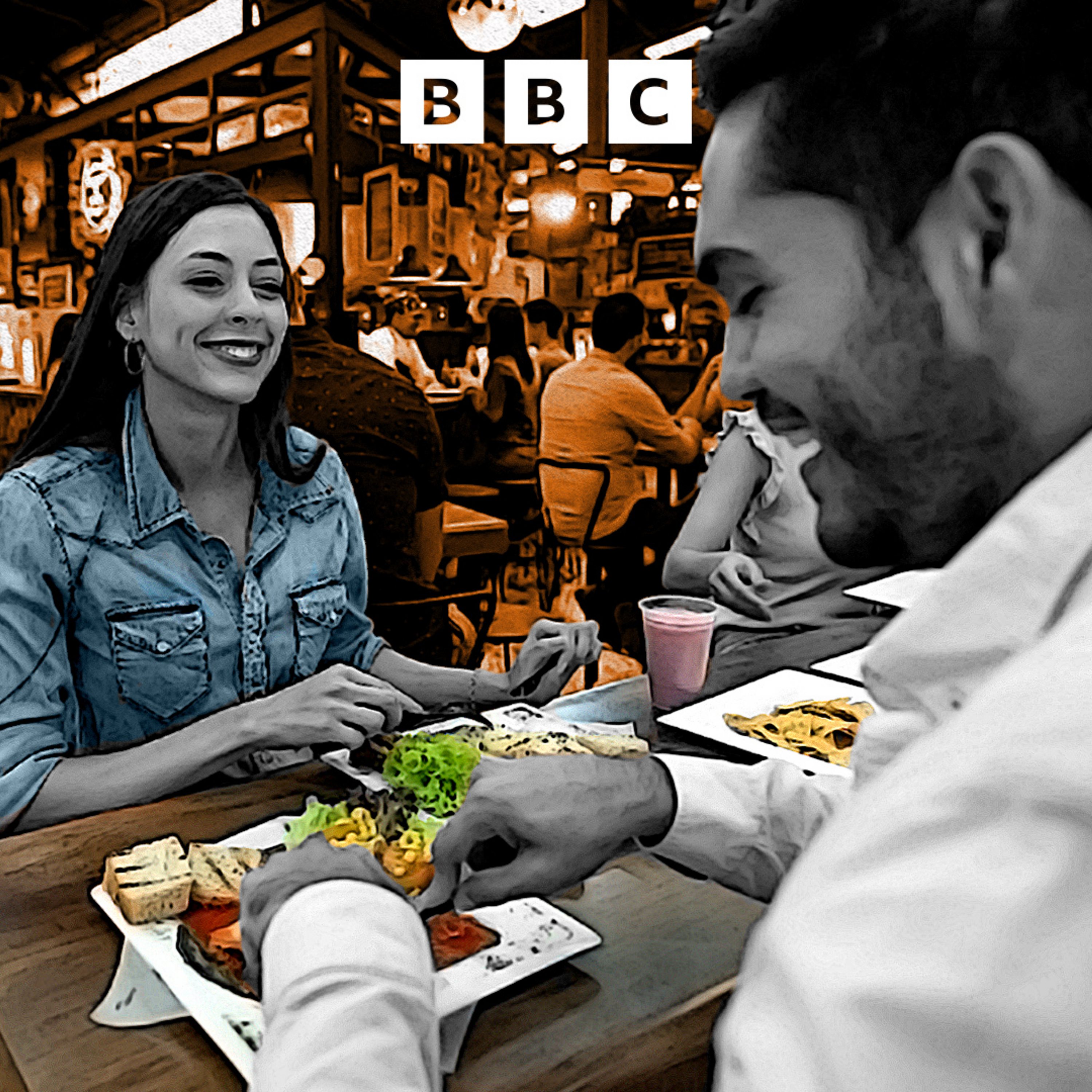
The business of food halls
Have you visited a food hall recently? It’s a venue bringing together multiple independent food and drink businesses, often with communal seating. We look at the ways in which food halls are being used to bring consumers and spend to new areas, raising the value of surrounding offices, apartments and other businesses. In this programme Devina Gupta visits Society food hall in Manchester in the UK, where she meets Julia Martinelli, who manages the pizza offering from Noi Quattro restaurant and Reece Gibson, operations manager for Vocation Brewery which runs the bar. Mariko Oi in Singapore reports from the Maxwell Hawker Centre in Singapore, to explore how today’s food halls have evolved from street food traders. Frode Rønne Malmo from Mathallen in Oslo, Norway and Spiros Loukopoulos, from Reffen in Copenhagen, Denmark talk about the ways in which their food halls have brought people to the surrounding area. Food hall consultant Philip Colicchio in New York in the US explains why this business model has been so popular. Presented by Devina Gupta. Produced by Beatrice Pickup. Additional reporting by Mariko Oi. (Image: a man and a woman enjoying plates of food in a food hall. Credit: Getty Images/BBC)
26:2814/08/2024
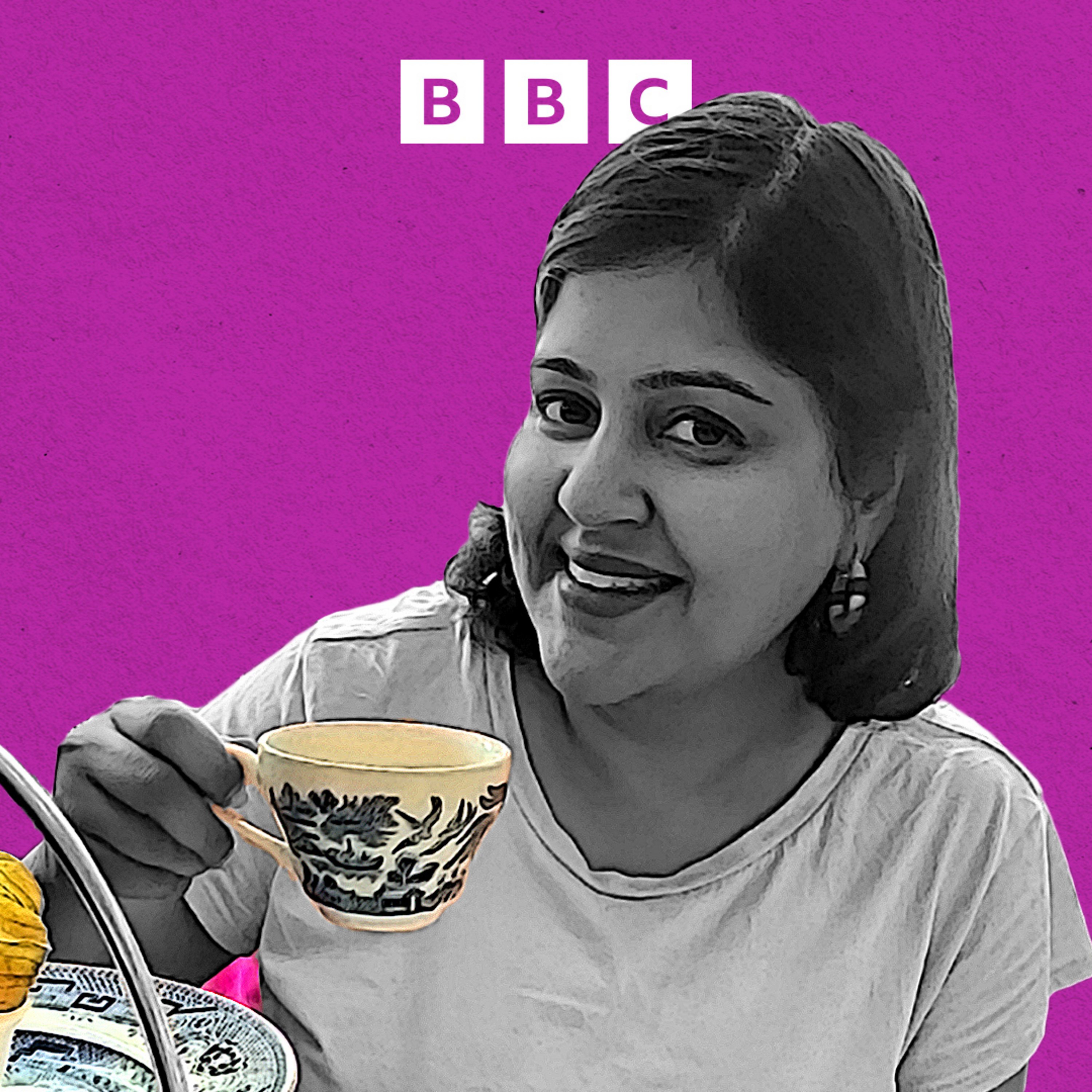
First impressions of a new food culture
Strawberries at the airport when meeting your future husband for the first time, finally tasting world famous fish and chips and wondering why on earth the pasta is green. These are some of this week’s stories of first impressions of food in a new country. Devina Gupta visits a multilingual cooking class in Manchester, UK, to find out how language, culture and food help people find a home in a new part of the world.. She speaks to a chef who fled Ukraine when the war started and now runs a restaurant in the Netherlands. Nathalia adapted to life there very quickly, but still can’t comprehend why the Dutch eat toast for every meal. Mariyam and Marius share their love story from across continents, and talk about the dishes – and those strawberries - which brought them together when they finally met. If you would like to get in touch with the show, please email: [email protected] Presenter: Devina Gupta
Producer: Hannah Bewley
Translation: Irena Taranyuk
(Image: Devina Gupta has afternoon tea. Credit: BBC)
28:1707/08/2024
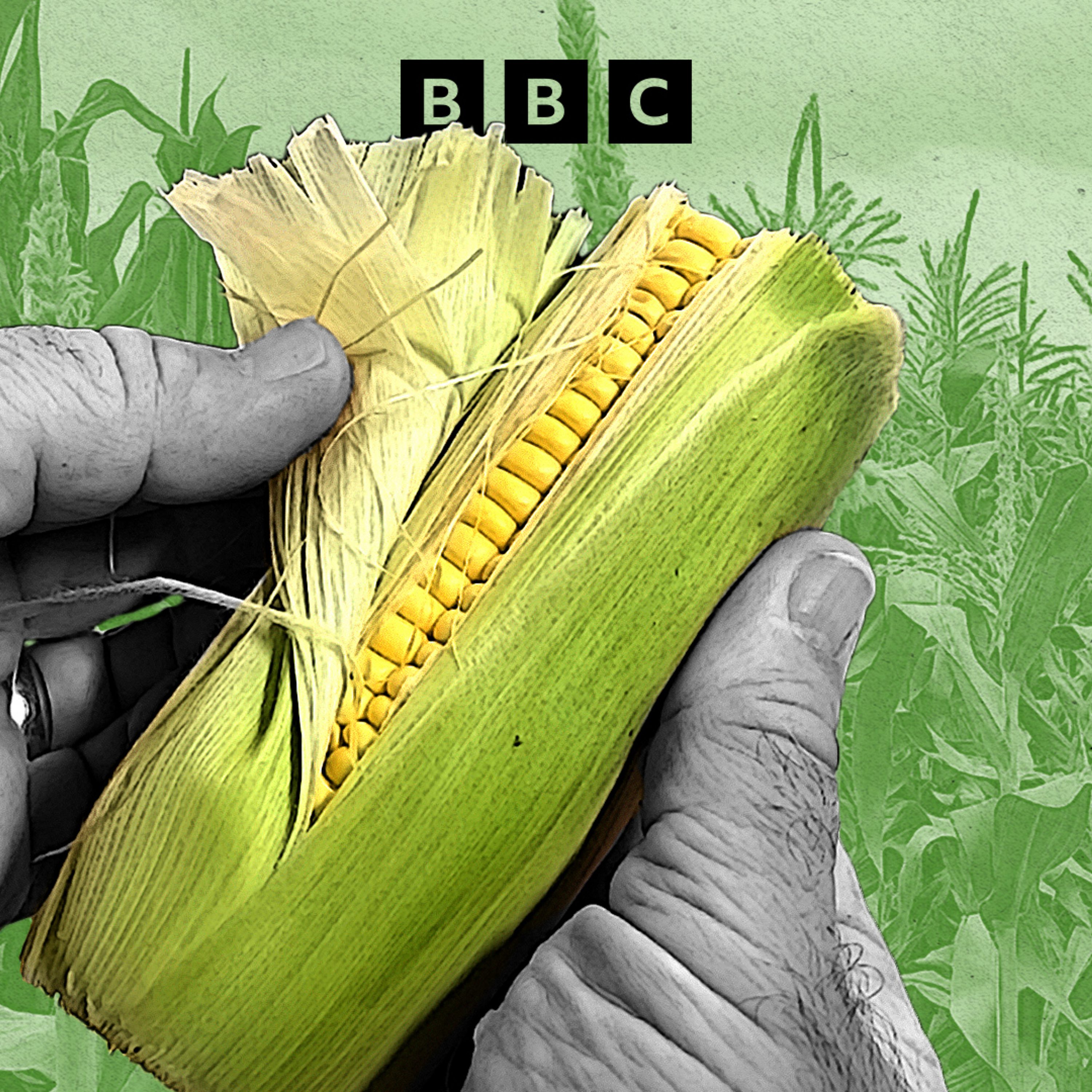
What is 'super sweet' corn?
Have you heard of ‘super sweet’ sweetcorn? If you’ve purchased fresh, frozen or tinned sweetcorn in the last few decades there’s a good chance its the super sweet variety. It’s an example of how our fruit and vegetables have been bred over time to make them sweeter, or less bitter. Its partly about appealing to consumer tastes, but can have other advantages such as better storage and reducing food waste. In this programme Ruth Alexander finds out how and why the taste of our fresh produce is changing, and asks if we’re gaining sweetness, what are we losing? Ruth visits Barfoots farm on the south coast of England, the biggest supplier of fresh sweetcorn in the UK, all of it super sweet varieties. Plant breeder Dr Michael Mazourek at Cornell University in the United States explains how selective breeding works, and what sort of characteristics have been prioritised by the food industry. Dr Sarah Frith, vet at Melbourne Zoo in Australia explains why they’ve stopped giving fruit to the animals. And Dr Gabriella Morini, chemist at the University of Gastronomic Sciences in Italy explains the latest research on bitter flavours, and why they might be good for us. If you’d like to contact the programme email [email protected] Presented by Ruth Alexander. Produced by Beatrice Pickup. (Image: corn on the cob in the husk, with a background image of a field of sweetcorn plants. Credit: BBC)
31:3431/07/2024
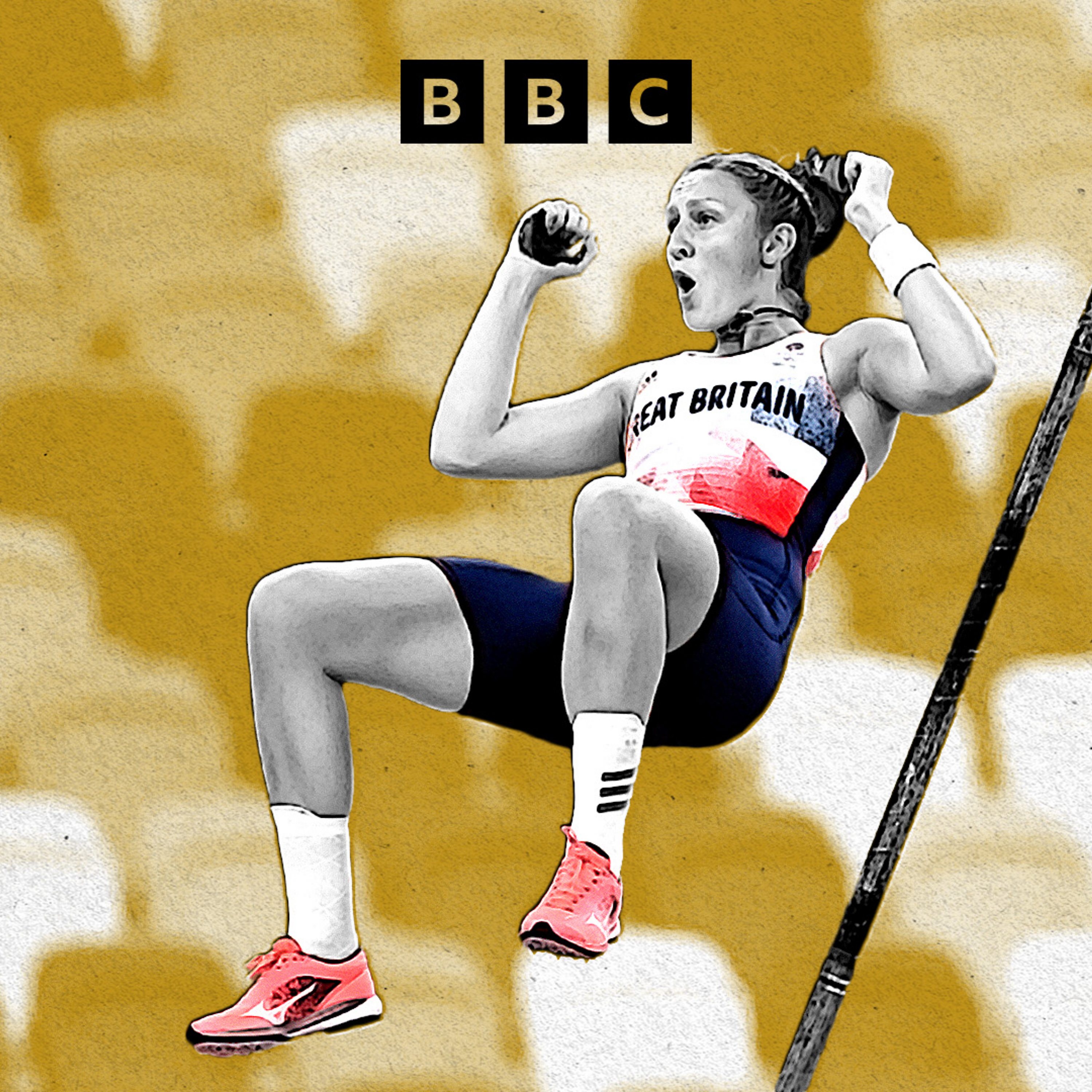
What Olympians eat
Three million bananas; 600-800 baguettes a day; 47,000 plates...as the world’s elite sportsmen and women arrive in Paris, a huge catering operation awaits them. Ruth Alexander finds out what it takes to keep the athletes happy and fuel a medal-winning performance. Team GB pole vaulter Holly Bradshaw talks about her relationship with food during her years as an athlete, and why she’s looking forward to retirement after Paris 2024. Alicia Glass, senior dietician for Team USA, gives an insight in to how a peanut butter and jelly sandwich at the right time can make a big difference. Reporter Michael Kaloki in Nairobi drops in on Kenya’s sprinters while they’re having lunch to find out what’s on their plates. And the head of catering for the London 2012 Games Jan Matthews offers advice for the team in Paris this year on how to keep athletes who need a lot of fuel happy. This programme includes conversations about losing and gaining weight, goal weights and difficult relationships with food that some listeners might find upsetting. If you would like to get in touch with the show, please email: [email protected] Presenter: Ruth Alexander Producers: Hannah Bewley, Elisabeth Mahy and Michael Kaloki (Image: Holly Bradshaw, Team GB pole vaulter, wins bronze at Tokyo 2020. Credit: Reuters)
28:1024/07/2024
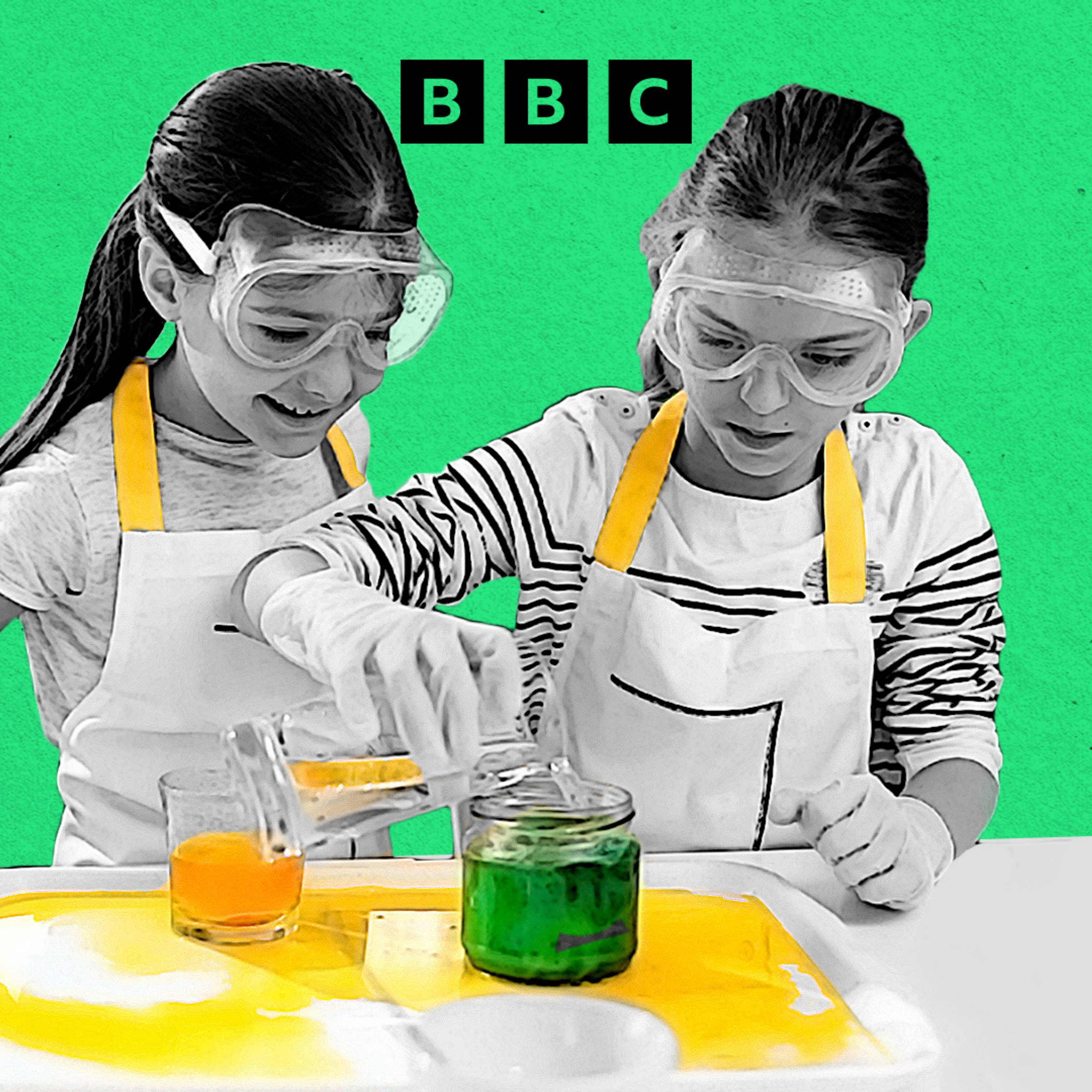
Cooking is chemistry
Why do we cook? To create flavour, to aid digestion and to release nutrients from our food. Every time we fry, steam, boil, or bake a series of chemical reactions take place that are key to a dish’s success. In this programme Ruth Alexander puts questions from the BBC World Service audience to Dr Stuart Farrimond in the UK, author of ‘The Science of Cooking’. Susannah and Aaron Rickard in Australia tell Ruth about the chemical reactions they discovered when researching their cookbook ‘Cooking with Alcohol’. And Krish Ashok in India, author of ‘Masala Lab: The Science of Indian Cooking’, explains the science behind the culinary wisdom of your parents and grandparents. If you’d like to contact the programme email [email protected] Presented by Ruth Alexander. Produced by Beatrice Pickup. (Image: two young girls wearing goggles and aprons conducting a science experiment. Credit: Getty Images/ BBC)
26:2817/07/2024

'Happy' cafes
Of the tens of millions of people around the world with autism or down syndrome, only a tiny fraction is in paid employment. But cooking, making drinks and waiting tables is work where people with learning disabilities can shine. John Laurenson takes us to a Café Joyeux (Happy Café) in Paris, one of a fast-growing chain of cafe-restaurants where most of the staff have autism or down syndrome and where the croque monsieur comes with a smile. We also hear from a cafe in Mumbai launched by the mother whose daughter has autism and, in Turkey, the KFCs with a difference. Find out how café work can transform the lives of employees and owners. Presenter/Producer: John Laurenson(Image: Louis, Laura, Anne-France and Arnaud. Credit: BBC)
26:2910/07/2024
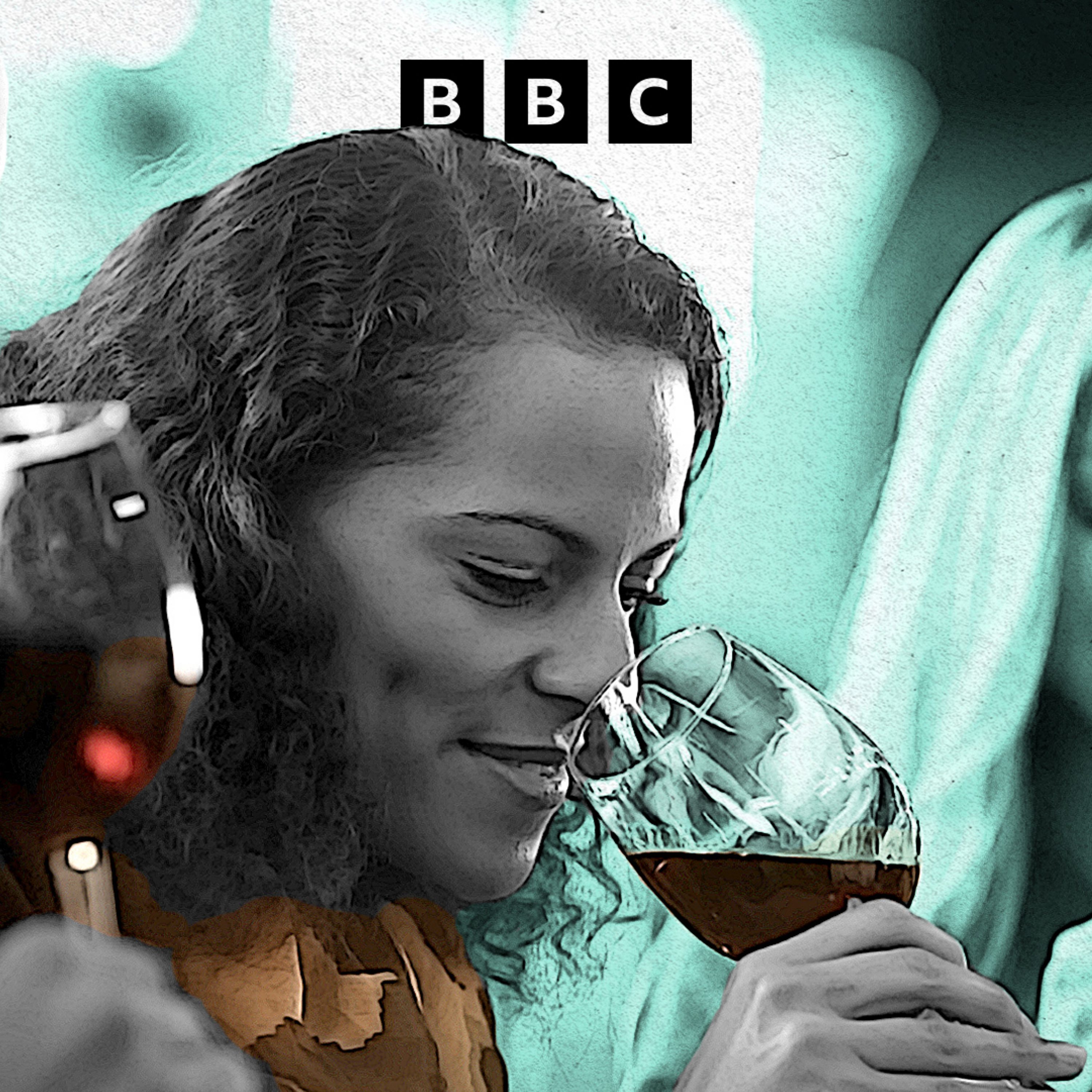
Your taste is unique
Taste, it turns out, is not a matter of opinion. Scientists have discovered that your perception of taste is informed by your genetics. When we eat or drink something, we may be having an entirely different experience to the person we’re sharing a meal with, or the chef who has prepared it, or the critic who has recommended it. In this programme Ruth Alexander explores her likes and dislikes and how they might be informed by biology. Ruth meets Laura Kent of the Yorkshire Wine School in the UK who helps her learn about her sensitivity to acidic and bitter flavours. Ruth speaks to Anne Fadiman, writer and Professor of creative writing at Yale University in the US, who dislikes wine, despite her wine critic father loving it. Danielle Reed, Chief Science Officer at the Monell Chemical Senses Center in Philadelphia, US, explains the science. Tim Hanni, Master of Wine, and author of ‘Why You Like The Wine You Like’ argues that the wine industry is not paying enough attention to individual tastes. Where does this new science leave wine competitions? David Kermode, judge at the IWSC, International Wine and Spirits Competition, makes the case for the experts.If you'd like to contact the programme, please contact [email protected] by Ruth Alexander.
Produced by Beatrice Pickup.(Image: three people tasting wine. Credit: Getty Images/BBC)
30:2603/07/2024

How safe is the soil in our cities?
More of us are living in cities and urban farming is on the rise. Can you be sure the city soil you’re growing in is clean enough? Industry and traffic can contaminate land, but there are ways to deal with the problem. Ruth Alexander finds out how to test soil, how to clean it, and which fruit and vegetables are the safest to grow on former industrial and commercial sites. If you would like to get in touch with the show, please email: [email protected](Picture: A garden trowel with some soil on it)Producer: Hannah Bewley
26:2826/06/2024
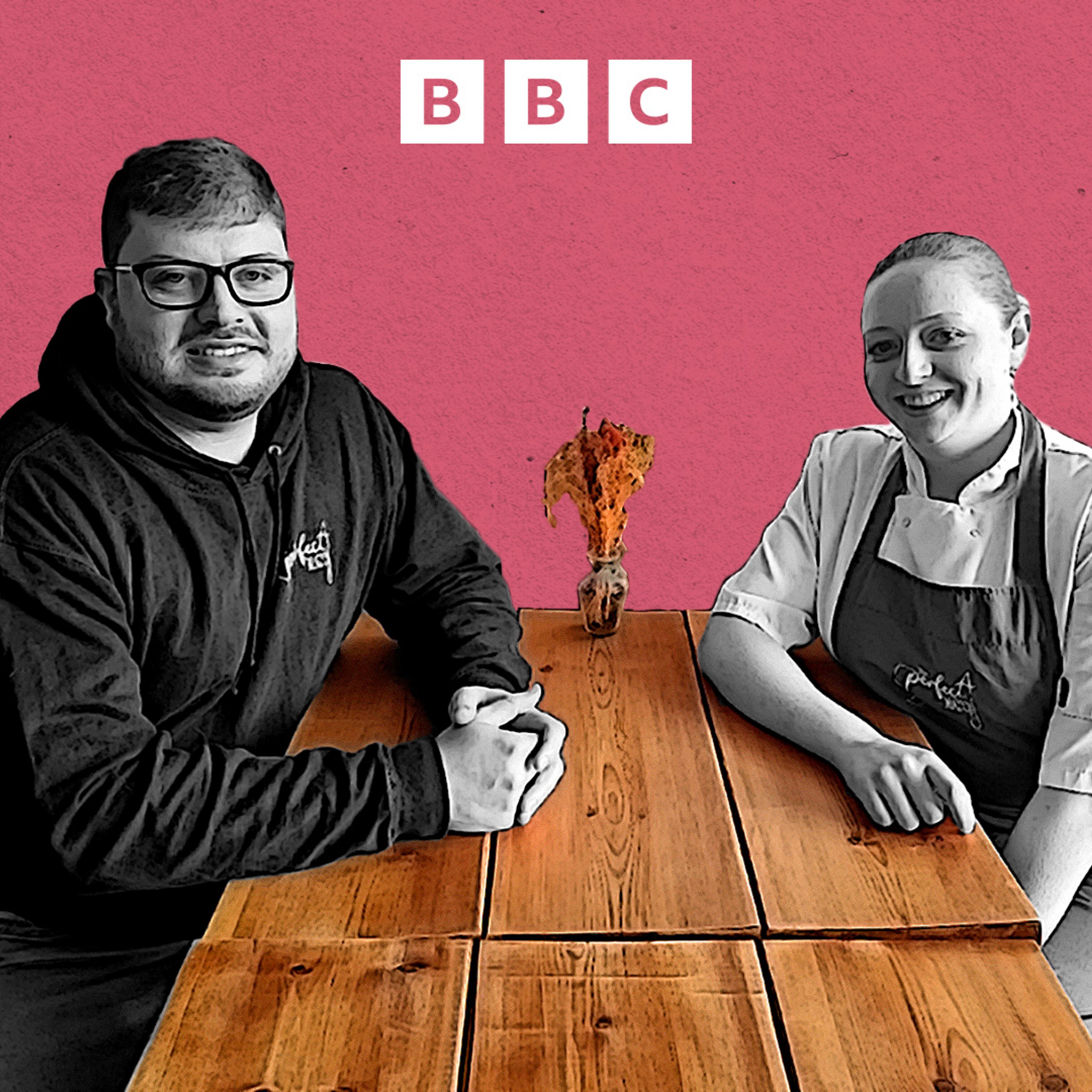
Food double-acts: Couples
What’s it like spending 24 hours a day together? Ruth Alexander speaks to couples who run restaurants. She hears how they met, what they argue about and why being a couple might be good for business. Ruth visits Andrea Follador and Jazz Navin at ‘The Perfect Match’ restaurant in Sale, in the North West of England. Jazz is the chef and Andrea is the sommelier, the two met working at Gordan Ramsay’s ‘The Savoy Grill’ in London. Ruth speaks to Francisco Araya and Fernanda Guerrero, chefs who have lived and worked together in their native Chile, China, and now Singapore where they run fine dining ‘Araya’ restaurant. Rita Sodi and wife Jody Williams ran a restaurant each, and then decided to open one together, 'Via Carota' in New York, United States. Today they run five bars and restaurants together in the city. If you would like to get in touch with the show please email [email protected]. Presented by Ruth Alexander. Produced by Beatrice Pickup. (Image: Andrea Follador and Jazz Navin who run ‘The Perfect Match’ restaurant together in North West England. Credit: BBC)
29:2919/06/2024
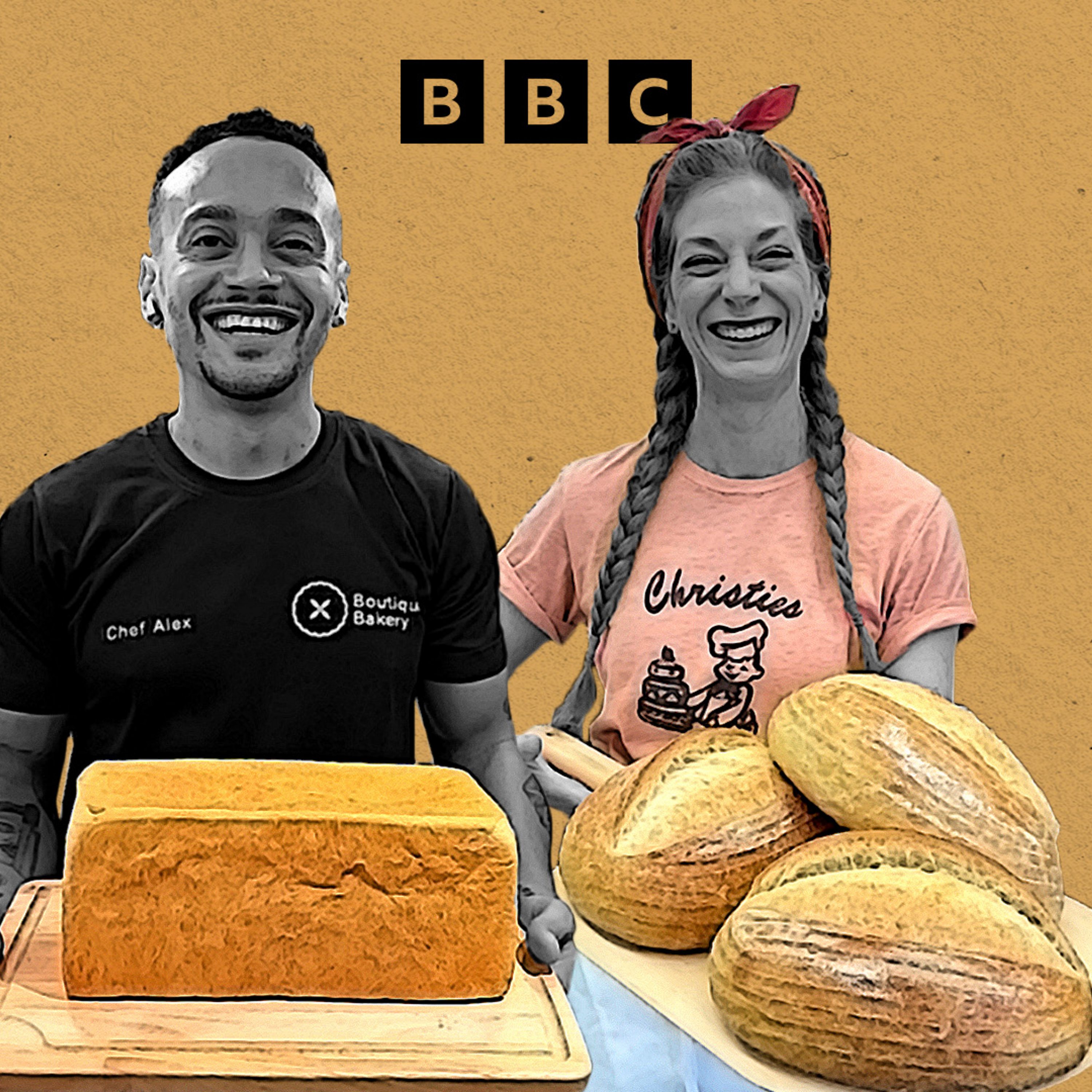
The bakers
In a world where ingredients cost more due to war and inflation how is easy is it to make and sell our daily bread? Ruth Alexander speaks to three bakers about how they started in the industry, the highs and lows and economic pressures in their part of the world. Alex Oke is the owner of XO Boutique Bakery in Lagos, Nigeria, Tracey Muzzolini is the owner of Christies Mayfair Bakery in Saskatoon, Canada and Samer Chamoun is the owner of The Lebanese Bakery, a chain of 12 branches including Beirut, Cairo and London. Presented by Ruth Alexander. Produced by Rumella Dasgupta.(Image: Alex Oke holding a loaf of Nigerian agege bread and Tracey Muzzolini holding a loaf of sourdough bread. Credit: Donna Martins/Chelsea Walton/BBC)
26:2612/06/2024
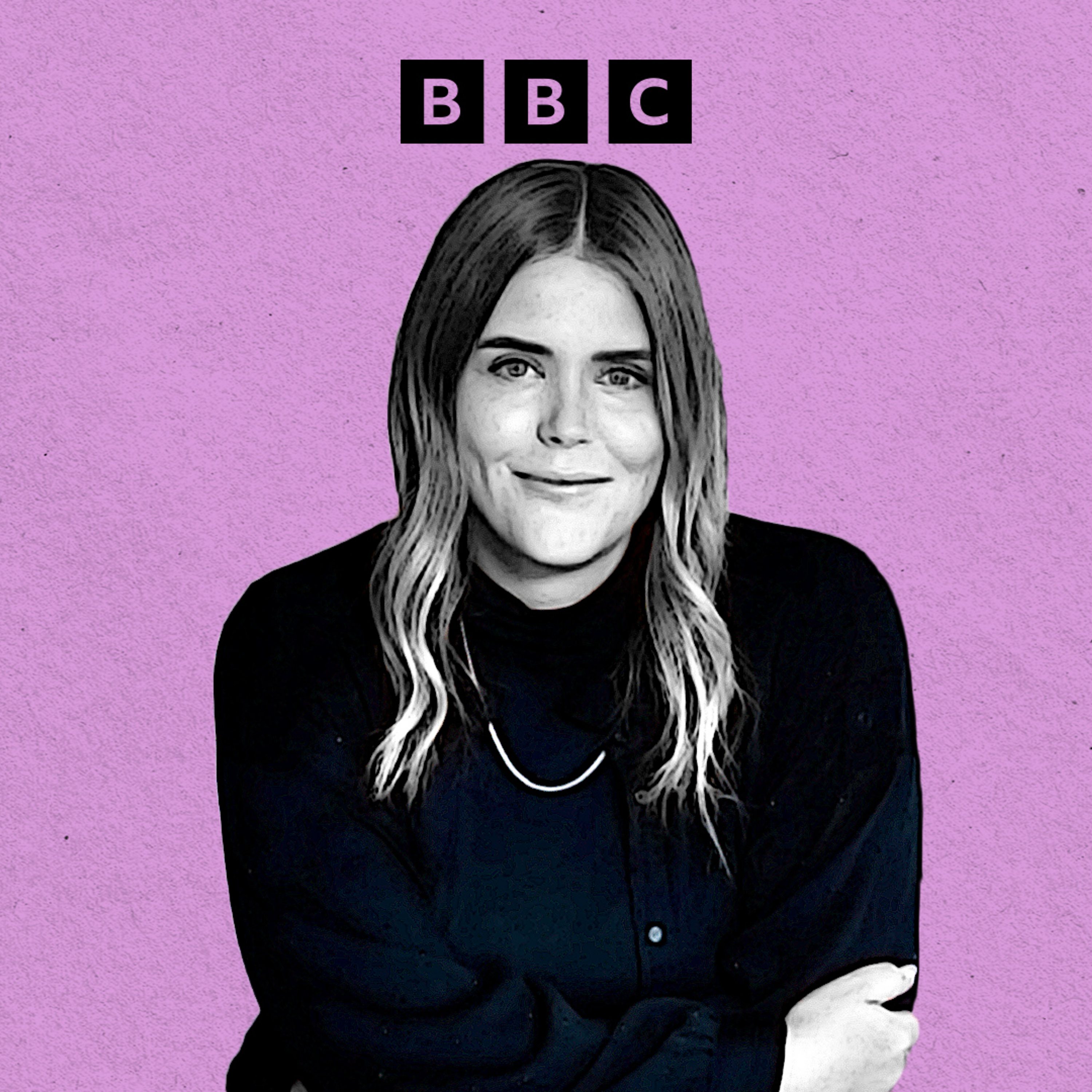
Taking weight-loss drugs
Ruth Alexander speaks to patients about their experiences of weight-loss drugs. The new class of drugs impact appetite, making you feel full sooner, and slowing the rate at which your stomach empties. Known as GLP-1 medications, studies suggest that patients can lose 10% or even up to 25% of their body weight depending on which drug they use. For many who have struggled with obesity and obesity related disease the drugs have the potential to transform their health. However some patients have struggled with the side effects of the drugs and the manufacturers’ own studies indicate that if people stopping taking them, much of the weight lost is regained, making them drugs for life for some. Ruth Alexander speaks to Professor of Cardiometabolic Medicine, Naveed Sattar, at Glasgow University who is Chair of the UK government’s obesity mission. He explains how these drugs work and the potentials costs and savings for the National Health Service, or NHS. Adrienne Bitar, historian at Cornell University in New York, is the author of ‘Diet and the Disease of Civilization’, a study of diet books of the 20th century. She explains the ideas diet culture is built on. And Ruth asks Gary Foster, Chief Scientific Officer at WeightWatchers, what these weight-loss drugs will mean for the multi-billion-dollar diet industry. Presented by Ruth Alexander. Produced by Beatrice Pickup. Image: Michelle Herum in Denmark who currently uses a weight loss drug. Credit: Hanne Juul/BBC)
30:5805/06/2024
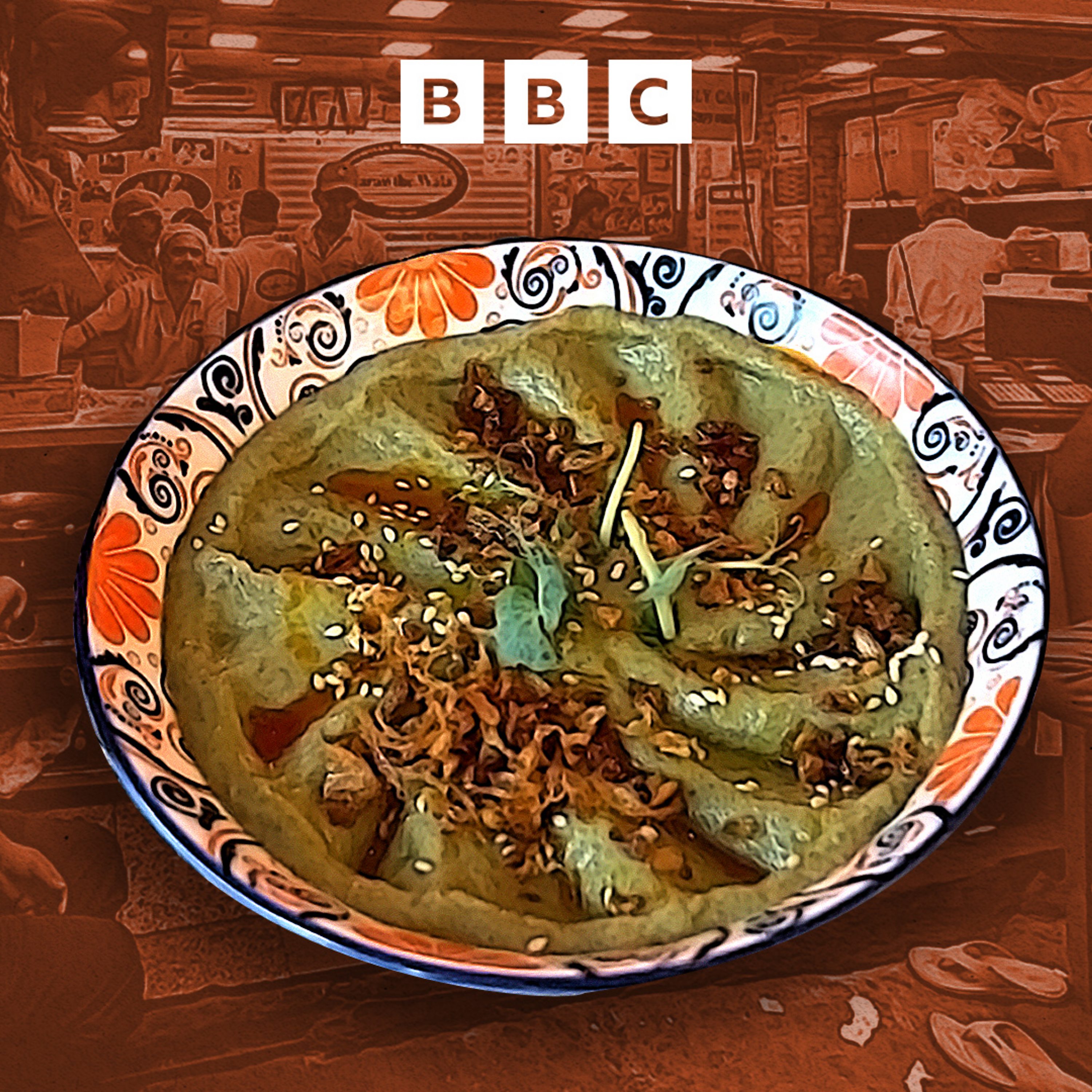
Eating in the heat
Devina Gupta takes a food tour of her home city of Delhi to see how people are adapting to rising summer temperatures. In May this year the city saw a record temperature of almost 50C, and knowing what to eat in such heat can be a challenge. The changing climate is sparking innovative recipes in restaurant kitchens and bringing traditional practices back to people’s kitchens. Devina tries old favourites at street markets, a modern twist on a classic drink at a high end restaurant and is (almost) convinced that a vegetable she has hated since childhood might work wonders in the heat. She hears from public health expert Dr Samar Husayn about why the cold, sweet treats you might reach for on a hot day aren’t always the best. And she sees the difference between how those who have air-conditioned homes and those who don’t are coping. Presenter: Devina Gupta Producer: Hannah Bewley (Image: A bowl of gourd dip with restaurant workers in the heat in the background. Credit: BBC)
26:2829/05/2024
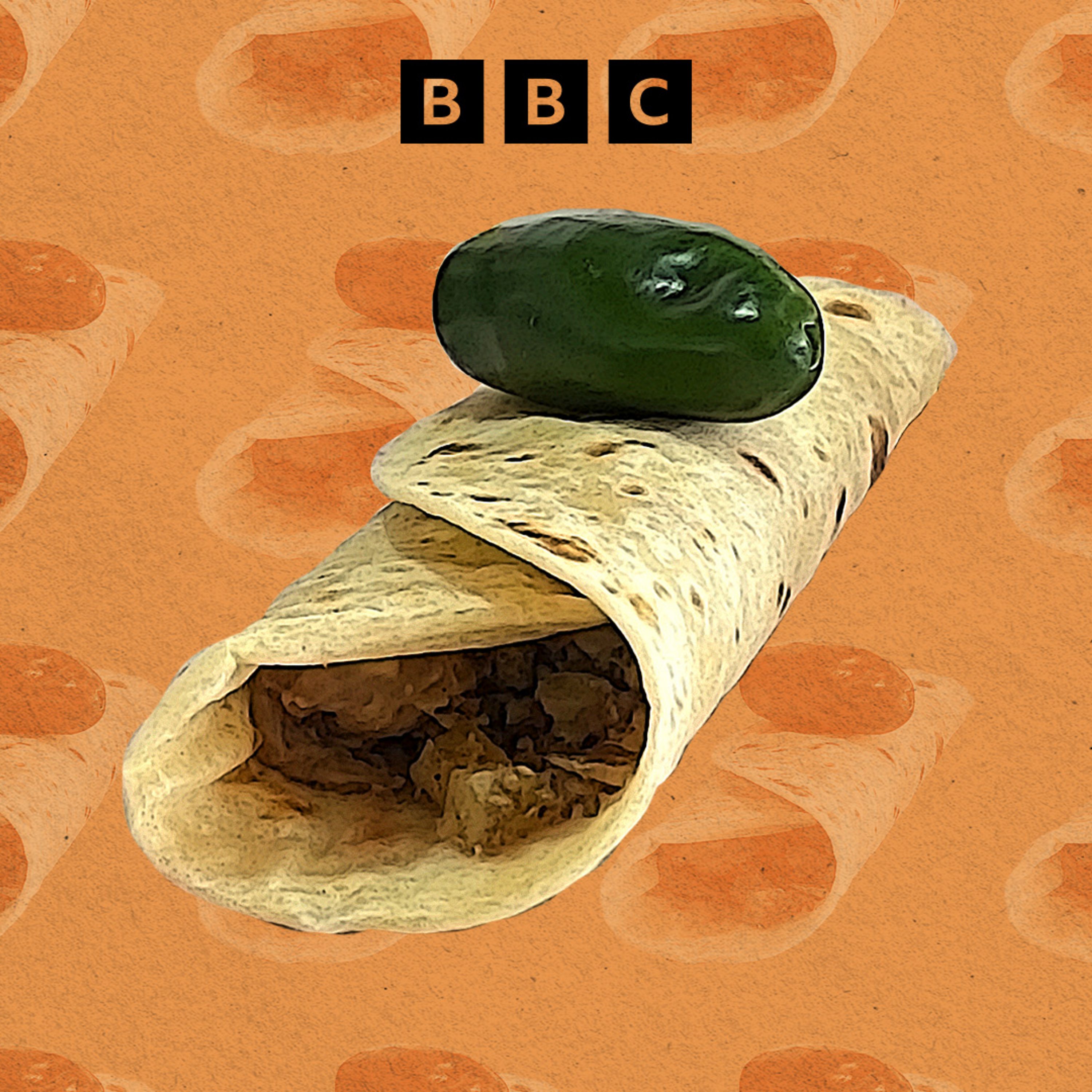
The burrito story
Ruth Alexander explores the origins and evolution of the humble grab-and-go food the burrito, which started life in northern Mexico, before crossing over into the US and becoming a hit around the world. Versions of the spicy wrap can be enjoyed in restaurants, street food shacks and supermarket home meal kits all over the world. We explore the burrito’s contested origins, find out why some Mexican food purists dislike the popular menu item and ask what the future holds for it, and the cuisine more broadly. If you would like to get in touch with the show, please email: [email protected] (Picture: a burrito in a restaurant in Juarez, Mexico. Credit: Vianey Alderete Contreras/BBC)Presented by Ruth Alexander.
Produced by Sam Clack.
Additional reporting by Vianey Alderete Contreras in Juarez, Mexico and El Paso, United States.
26:2922/05/2024
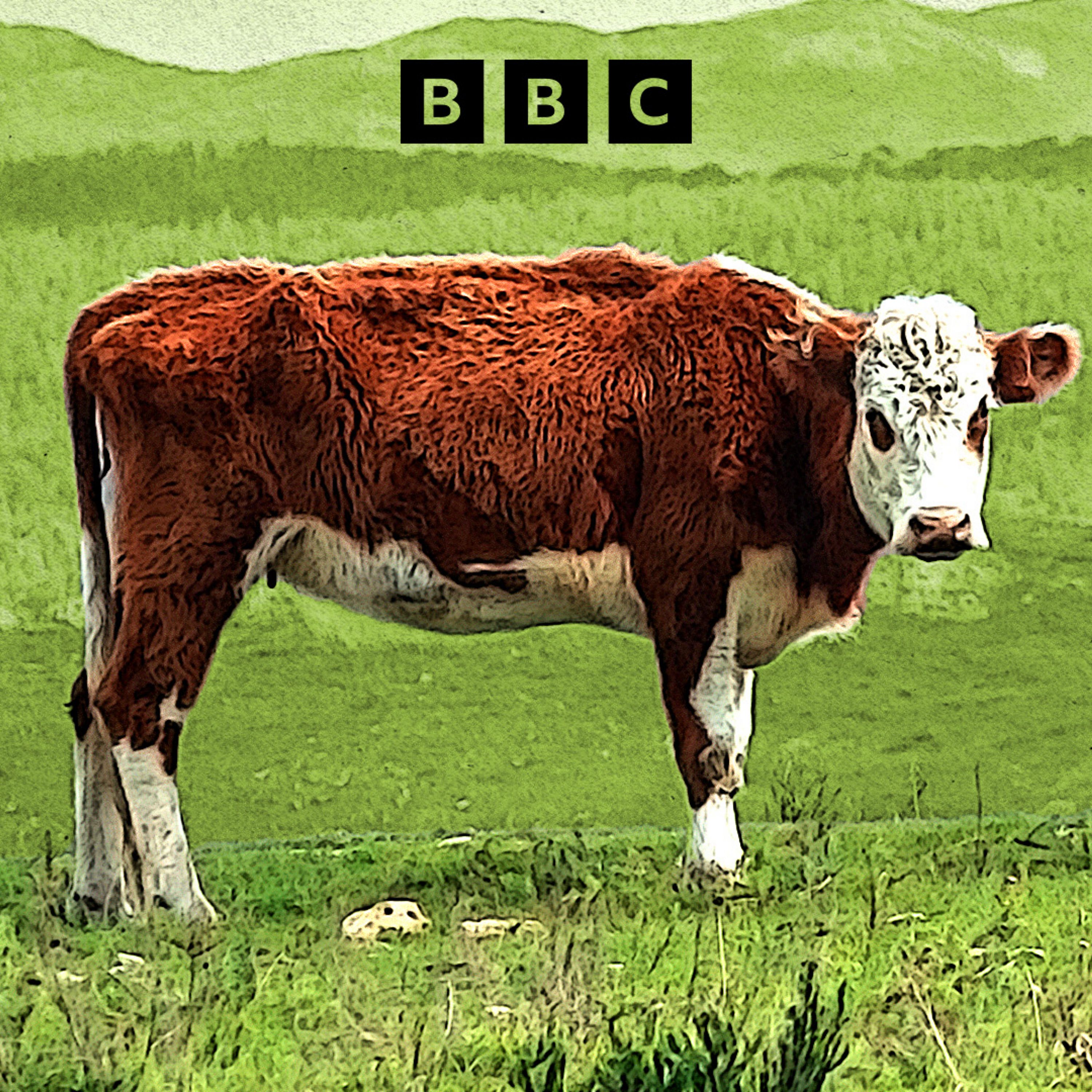
Can beef be carbon neutral?
Cows emit greenhouse gases when they eat, which contributes to global warming. But is it possible to produce meat in a climate-friendly way? Grace Livingstone visits a carbon neutral certified ranch in Uruguay, where farm manager Sebastian Olaso shows her around. She also meets Javier Secadas, a small farmer who raises cattle on natural grasslands, and agronomist Ignacio Paparamborda, from the University of the Republic in Montevideo.Grace hears from Pete Smith, Professor of Soils and Global Change at the University of Aberdeen, and Dominik Wisser, Livestock Policy Officer, from the United Nations’ Food and Agriculture Organisation. She tries to find out if it is possible to produce meat in a way that is both good for nature and the climate. Or whether we need to stop eating meat to cut emissions.Presenter/Producer: Grace Livingstone
(Image: Cows grazing in Uruguay. Credit: Getty Images)
26:2915/05/2024
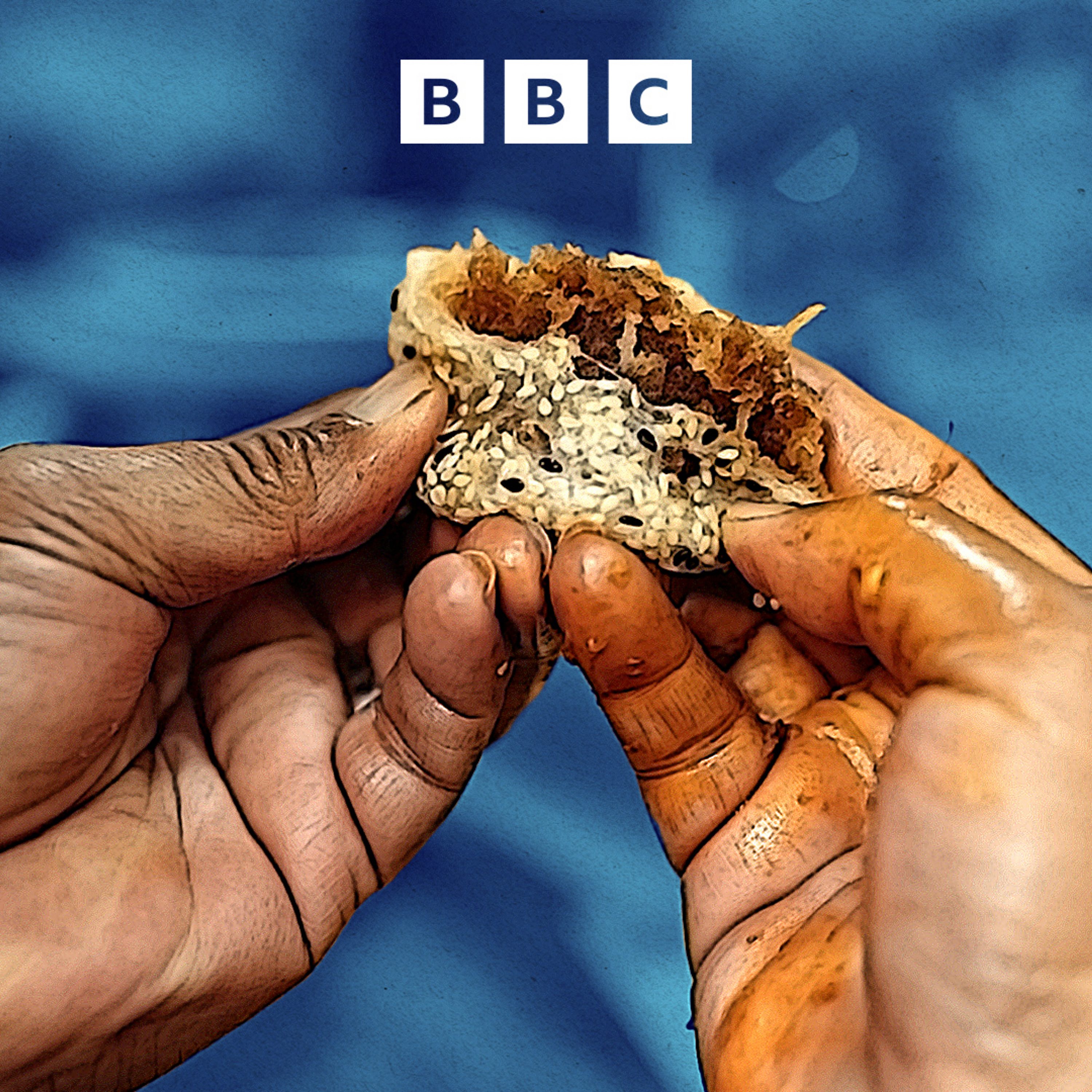
Eat with your hands
Why eat with your hands? Many food cultures around the world eat using hands, and most of us use our hands some of the time. Do we really need cutlery or chopsticks to eat a salad, peas or rice? And if you were to tackle soup or stew with your hands, how would you go about it? Michael Kaloki reports from Nairobi, Kenya, where the staple dish ugali, made from maize flour, is traditionally eaten by hand. Michael has observed that people increasingly use cutlery to eat the dish, and he speaks to restaurateurs and customers about why that might be, and what might be lost. Ruth Alexander learns about the etiquette of eating by hand with food writer and consultant Karen Anand in India. And Ruth explores whether food might be more enjoyable, and even taste better, when eaten by hand. Psychologist Professor Charles Spence from Oxford University, and chef Jozef Youssef of Kitchen Theory in the UK share their research. If you would like to get in touch with the show, please email: [email protected] Presented by Ruth Alexander. Produced by Beatrice Pickup. Reporting by Michael Kaloki in Nairobi, Kenya. (Image: a man’s hands, pulling apart a sweet cake wrapped in dough, with sauce on his hands. Credit: Getty Images/ BBC)
30:3108/05/2024
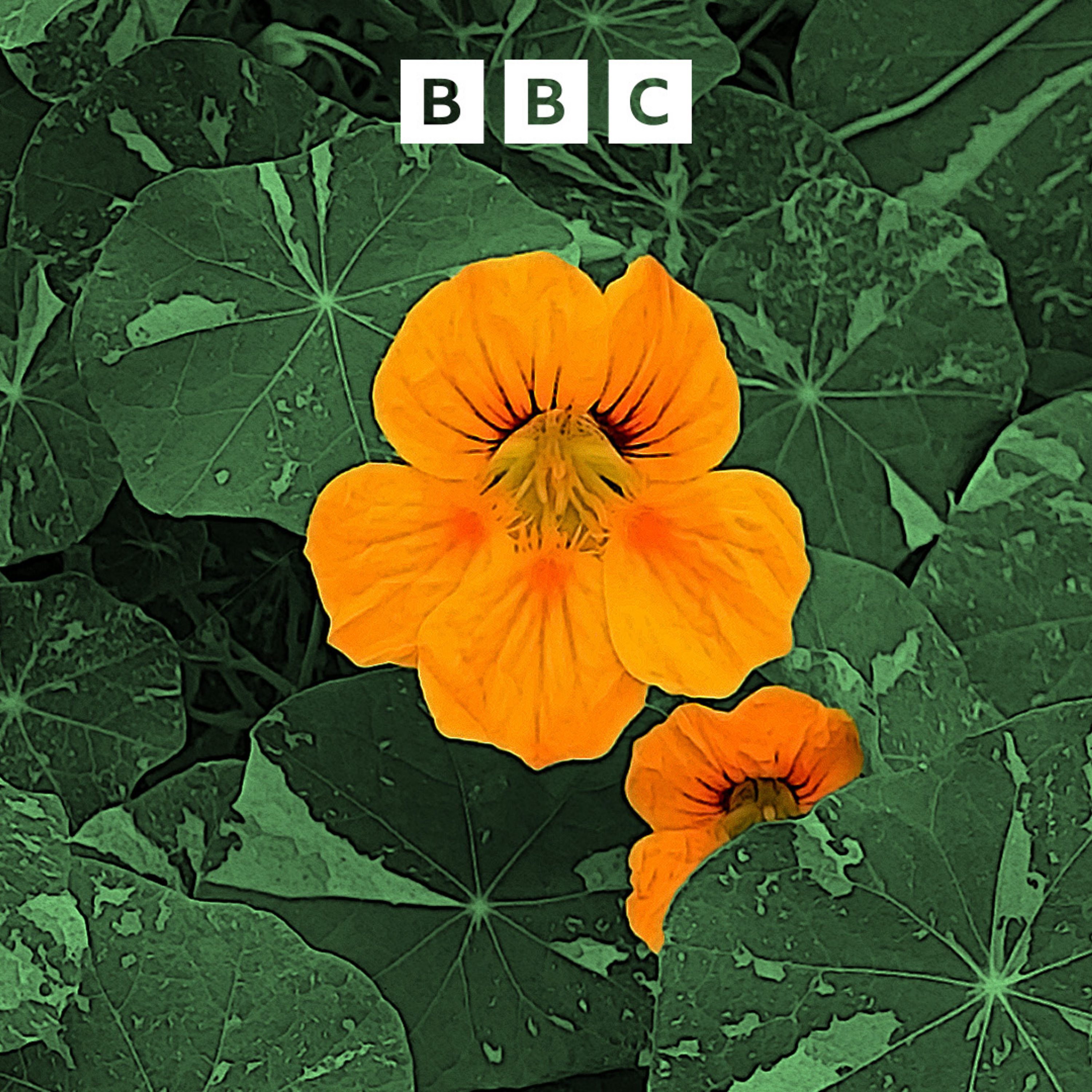
Can I eat this flower?
Stunning cakes, colourful salads and intricate garnishes use flowers to entice customers, but there’s more to this trend than just beautiful social media pictures. Many cultures around the world have eaten flowers for centuries, and some of them pack a serious punch. Devina Gupta explores the history of edible flowers and visits a site in the UK where they’re grown all year round. She gets quite a shock when trying one particular variety. We find out why flowers are used on food nowadays, and how generations of knowledge about their use and properties were lost when they were brought to Western countries. If you would like to get in touch with the programme, email [email protected]. Presented by Devina Gupta Produced by Julia Paul and Beatrice Pickup (Image: A nasturtium flower growing. Credit: BBC)
26:2801/05/2024
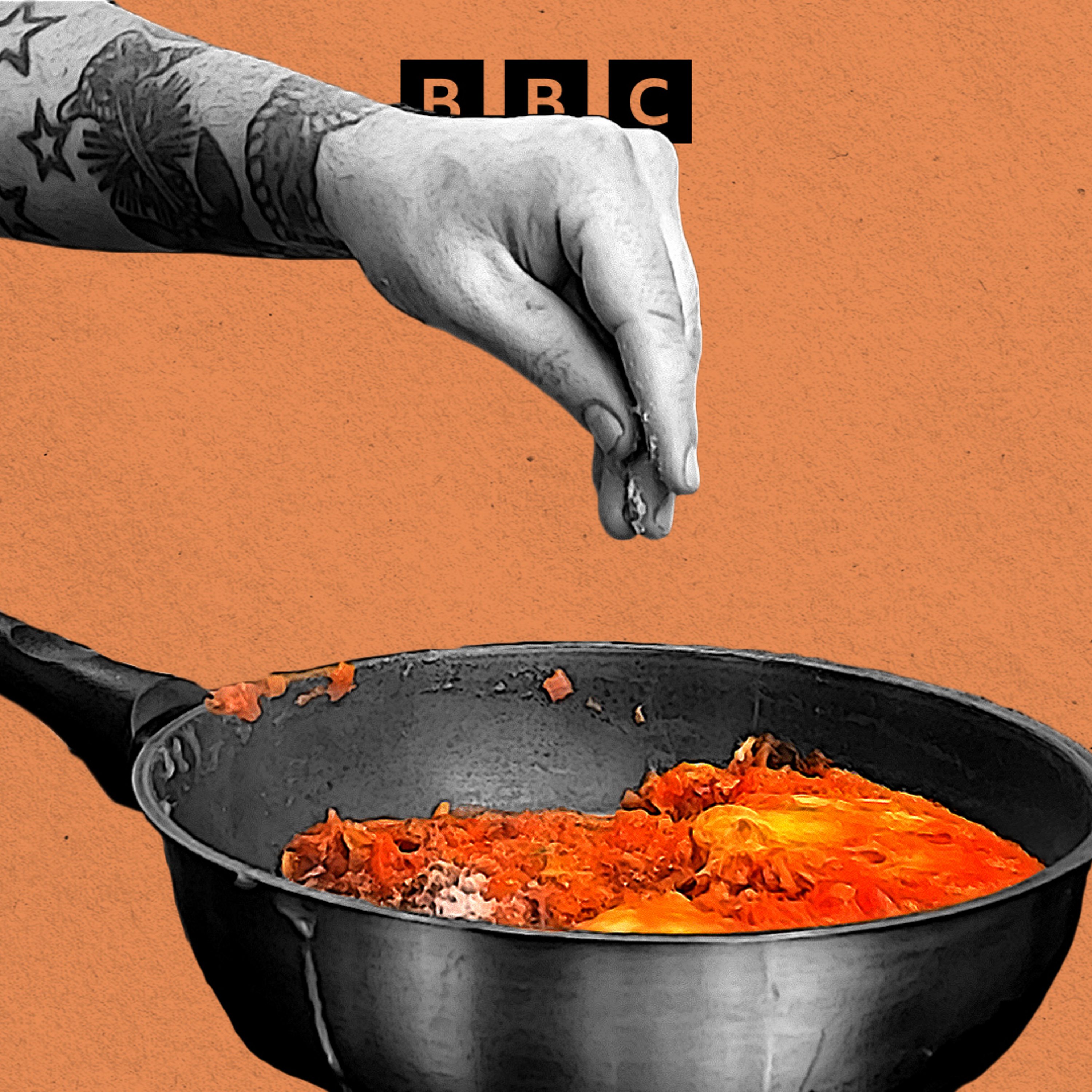
To salt or not to salt?
Do you know how much salt you should be eating? And if I tell you it’s less than 5 grams a day, do you know how much that is? Ruth Alexander explores the wonder of salt and why chefs think their job would be pointless without it and why the impact it’s having on the food might surprise you. Professor Paul Breslin tells us about the “magical” chemical reaction happening on your tongue when you eat salt, and why your brain responds to that. We hear about what eating too much salt can do to you from an expert in Australia, as well as a mother in Kazakhstan who cut out salt almost completely – in a country which has one of the highest consumptions in the world. If you would like to get in touch with the show, please email: [email protected] Presented by Ruth AlexanderProduced by Hannah Bewley (Image: A chef sprinkles salt on a pan of food. Credit: BBC)
26:2324/04/2024
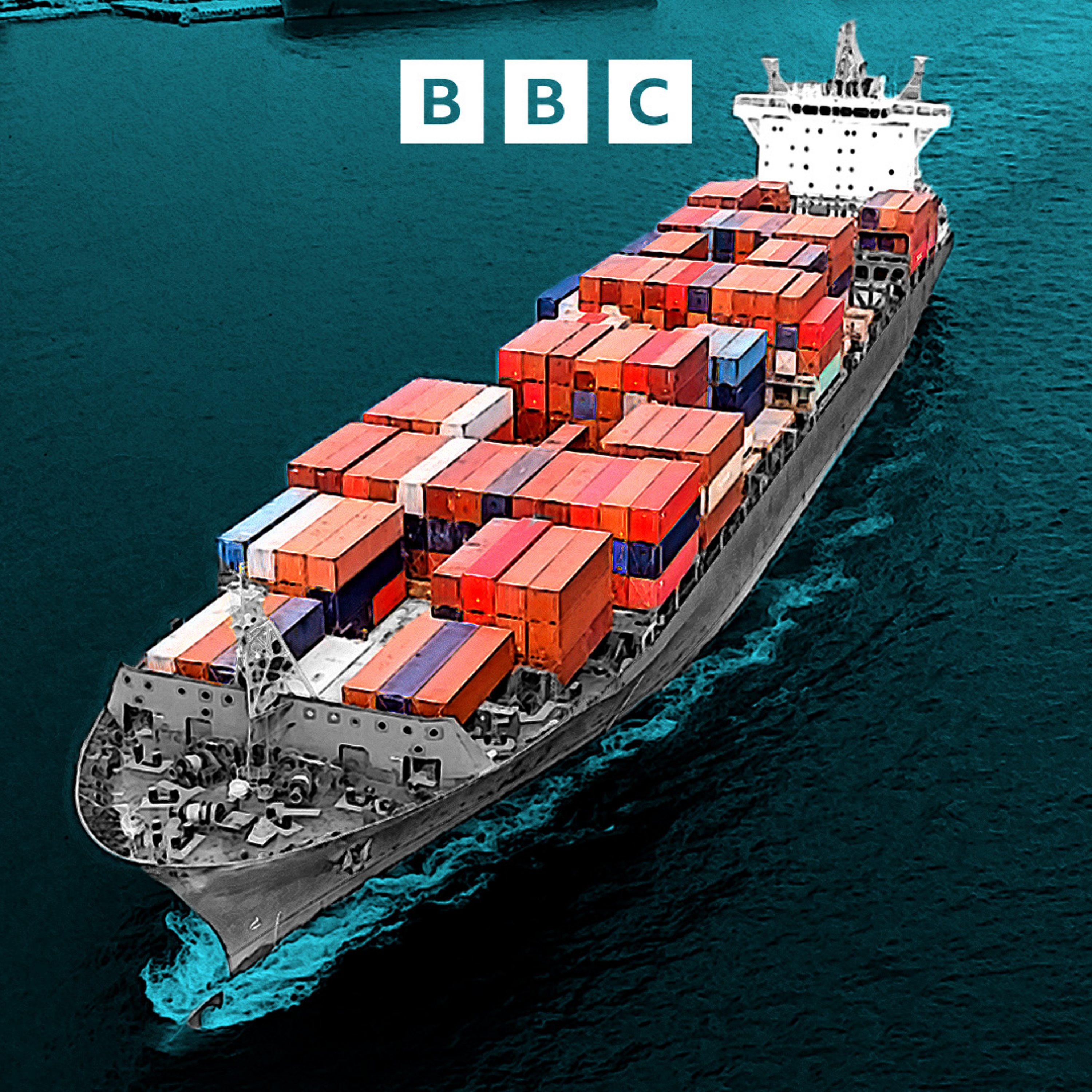
Hungry at sea
Over two million people work in the international shipping trade, and they are often at sea for months at a time. That’s a lot of meals being made by the cook on board, and their work is crucial for keeping the crew happy. Ruth Alexander hears from seafarers about why that makes “cookie” the most important person on board a ship and why, in some cases, crew members are going hungry. A former captain of merchant vessels tells us how food is used for so-called “facilitation payments” to corrupt officials, and why crews can sometimes be powerless to stop port officials filling up suitcases with food from the ship’s stores. We also hear about international efforts to try to tackle corruption in ports and increase welfare standards for seafarers. If you would like to share your own experience, please email: [email protected] Presenter: Ruth Alexander Producers: Izzy Greenfield and Hannah Bewley (Image: A container ship at sea. Credit: Getty Images)
26:2917/04/2024
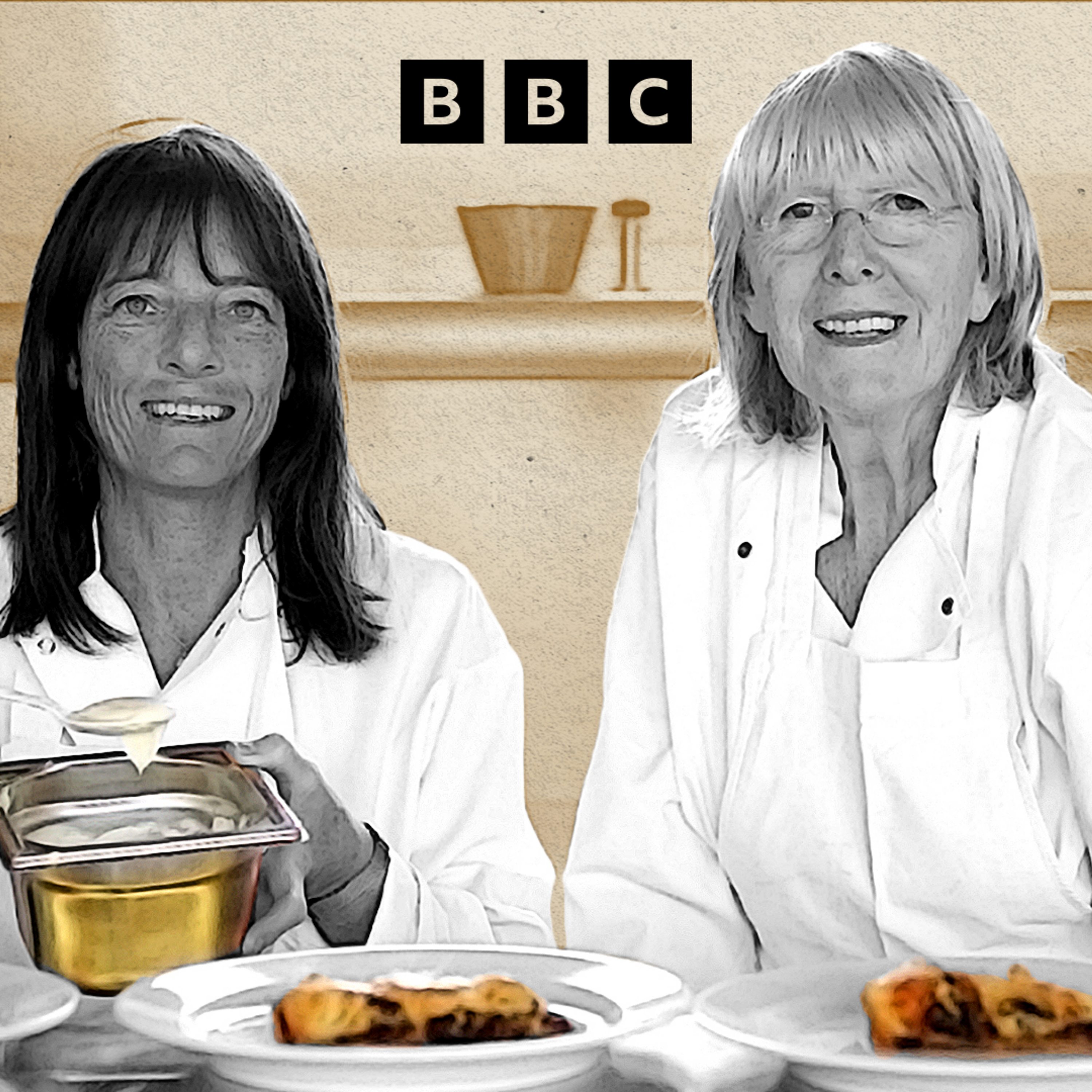
Food double-acts: TV chefs
What’s the secret behind the on-screen chemistry shared by some TV chef duos? The recent death of Dave Myers, one half of ‘The Hairy Bikers’ with Si King, has prompted this programme celebrating successful food friendships. Dave and Si made food shows and cookbooks that took their fans all over the world, and off-screen they were close friends. In this programme Ruth Alexander speaks to two chefs who have found success in food with a good friend. Ruth Rogers, co-founder of The River Cafe restaurant in London, talks about her partnership with the late Rose Gray, who died in 2010. Together they presented ‘The Italian Kitchen’ for Channel 4 in the UK in 1998. Italian chef Gennaro Contaldo talks about his long friendship and work with the late chef Antonio Carluccio, and the TV series they made together for the BBC, ‘Two Greedy Italians’ in 2011 and 2012. Gennaro also talks about his friendship with the chef Jamie Oliver to whom he’s been a mentor. Presented by Ruth Alexander. Produced by Beatrice Pickup. (Image: Ruth Rogers and Rose Gray plating dishes at The River Cafe restaurant in London. Credit: Maurice ROUGEMONT/Getty Images/ BBC)
29:2310/04/2024
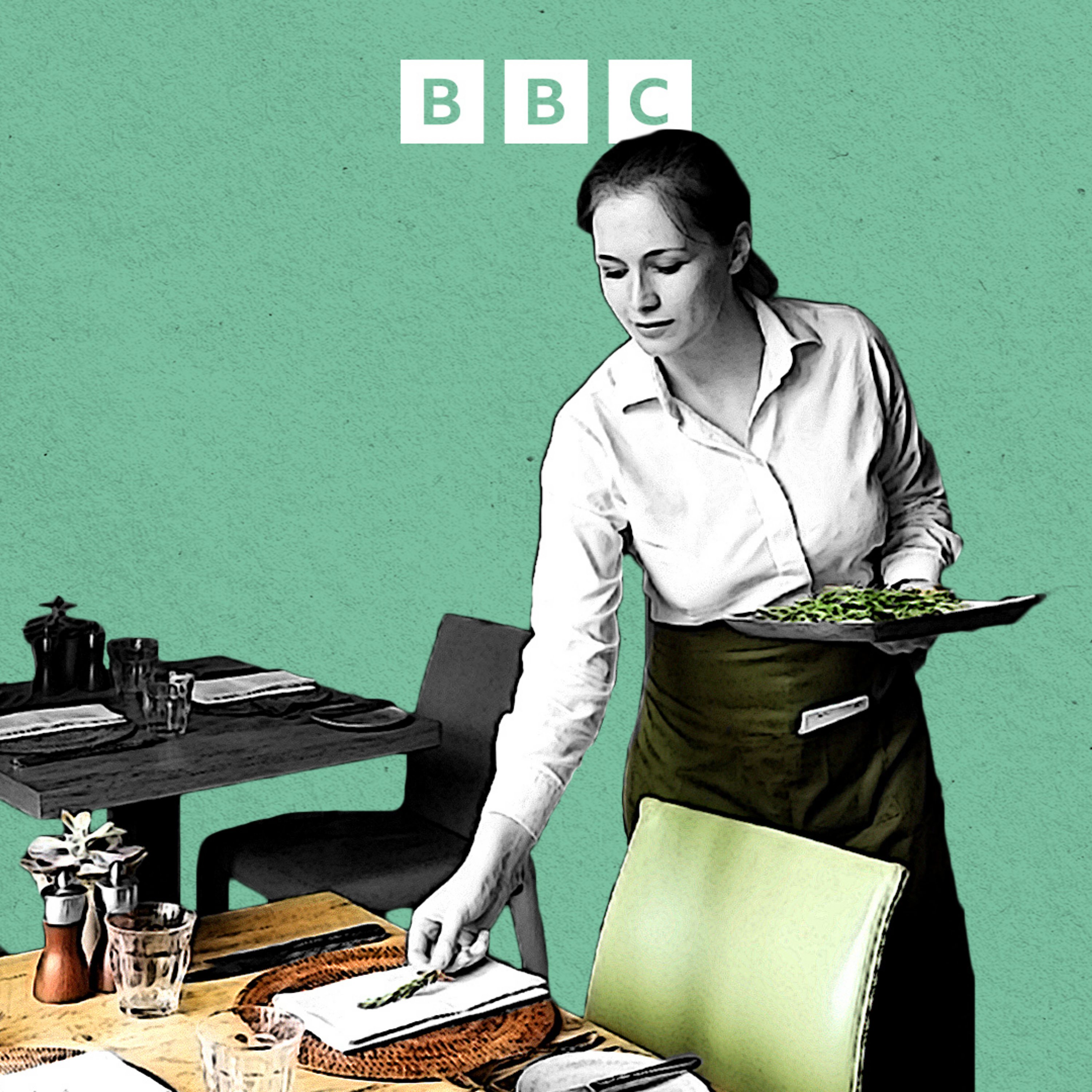
How to run a restaurant
These are tough times for restaurants. If the pandemic's rolling lockdowns were not bad enough, independent eateries now find themselves caught on a conveyor belt of crises: inflation, labour shortages and high rents. That is without mentioning the post-Covid agoraphobic “hermit consumer", who prefers to hunker down indoors than splash the cash on going out. If the stats are to be believed 60% of restaurants fail in the first year, 80% after five. And yet despite the long odds many are still seduced by TV dramas like The Bear into turning their passion for cooking into a business. We hear from some of the best in the business for a steer on how to keep this labour of love alive. David Reid speaks to leading restaurant critic Jay Rayner, culinary specialist Ashley Godfrey, top chef Joseph Otway and restaurant operations manager, Sam Wheatley as they lift the lid on the trade secrets they have accumulated from years on the restaurant front-line. The programme also asks what a world without independent restaurants would be like and what we as strapped consumers can do to save the flagging middle of the restaurant market from going under. Presenter/producer: David Reid (Image: A waitress lays a table in a restaurant. Credit: Getty Images)
26:1803/04/2024
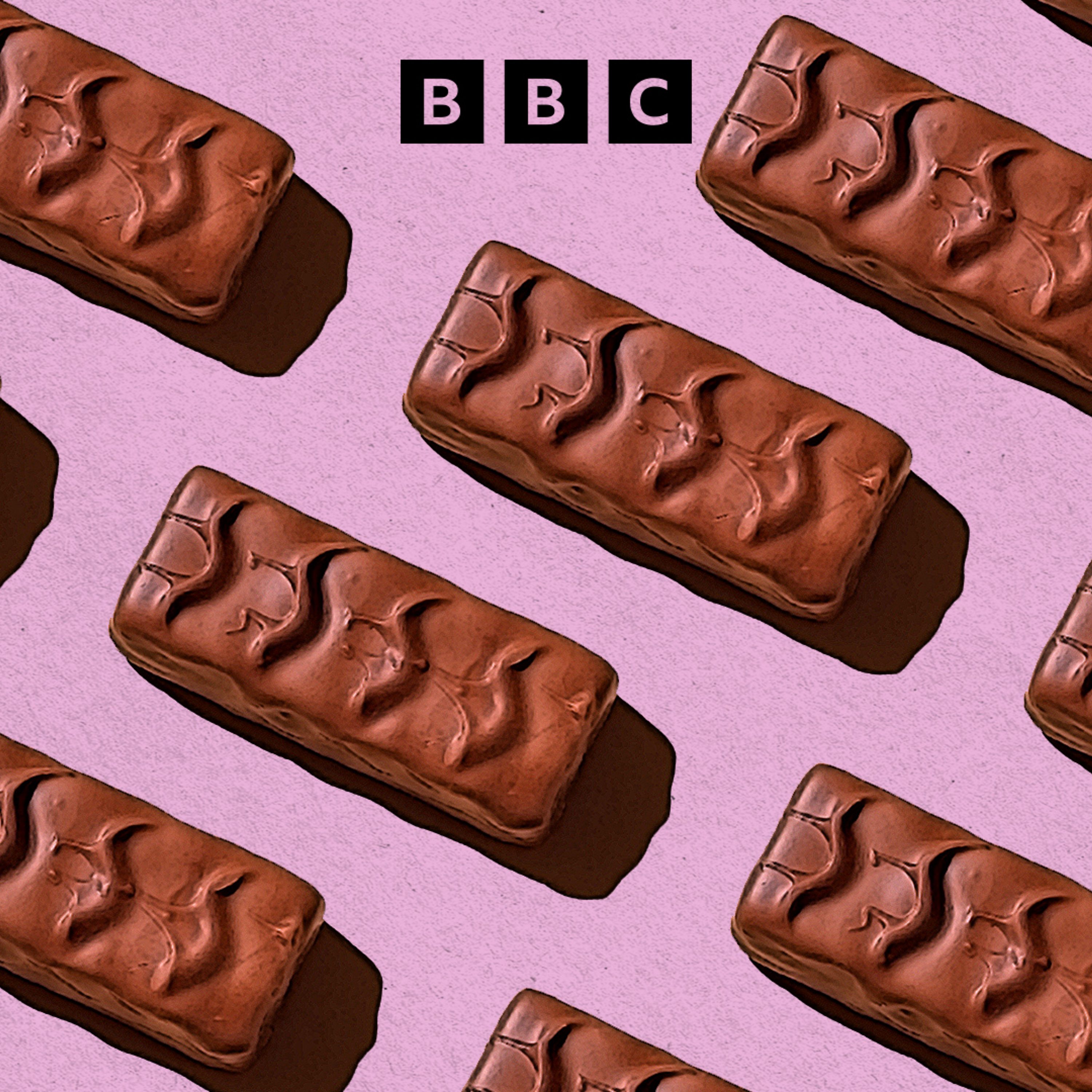
The real Willy Wonkas
Step inside the chocolate factory to hear the secrets of what it’s like to invent sweet treats for a living. Find out why chocolatiers think the raw material is like a “needy child”, but can also bring great joy to people’s lives. And hear the family story of the invention of one of the best-known British chocolate bars, with a trip to an archive of hidden stories from the confectionary industry – and some well-preserved sweets. If you would like to get in touch with the show, please email: [email protected] Presenter: Ruth Alexander Producer: Hannah Bewley (Image: Chocolate bars on a colourful background. Credit: Getty)
27:1328/03/2024
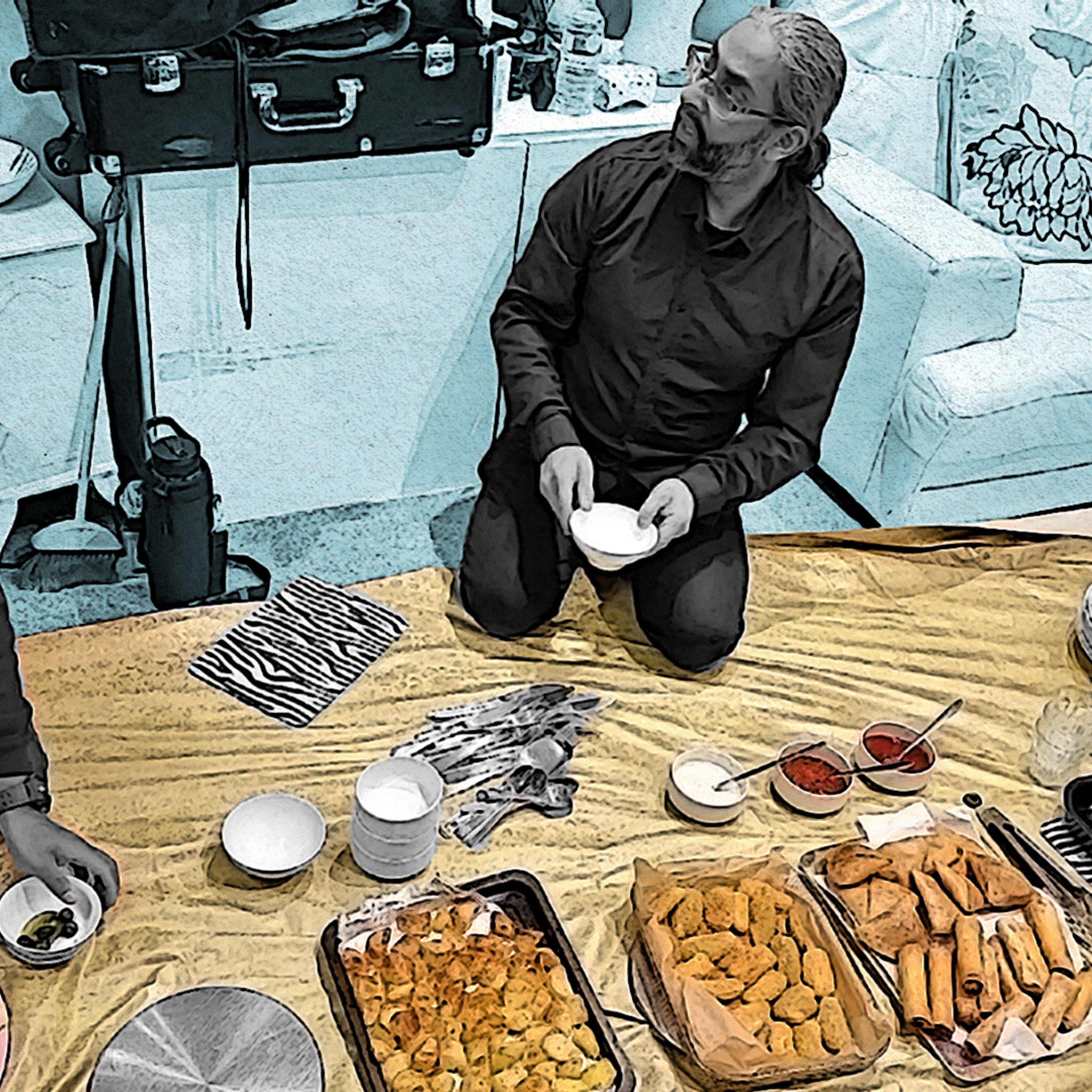
Fasting and feasting
Fasting has been a religious and cultural practice for thousands of years, why do people do it? What happens to your body when you fast? The Food Chain speaks to a British family breaking their fast during Ramadan, a woman in India completing a day long fast for Mahashivratri and explores why the practices around Lent have changed over the years. An expert on intermittent fasting talks us through what is happening to our bodies, and why it might have hidden benefits. In this programme, Rumella Dasgupta explores the tradition of religious fasting with what to eat and what not to eat in three major faiths. If you would like to get in touch with the programme, email [email protected]. Presented by Rumella Dasgupta. (Image: a family in Manchester breaks their fast together with dishes spread out on a cloth on the floor. Credit: BBC)
32:3921/03/2024
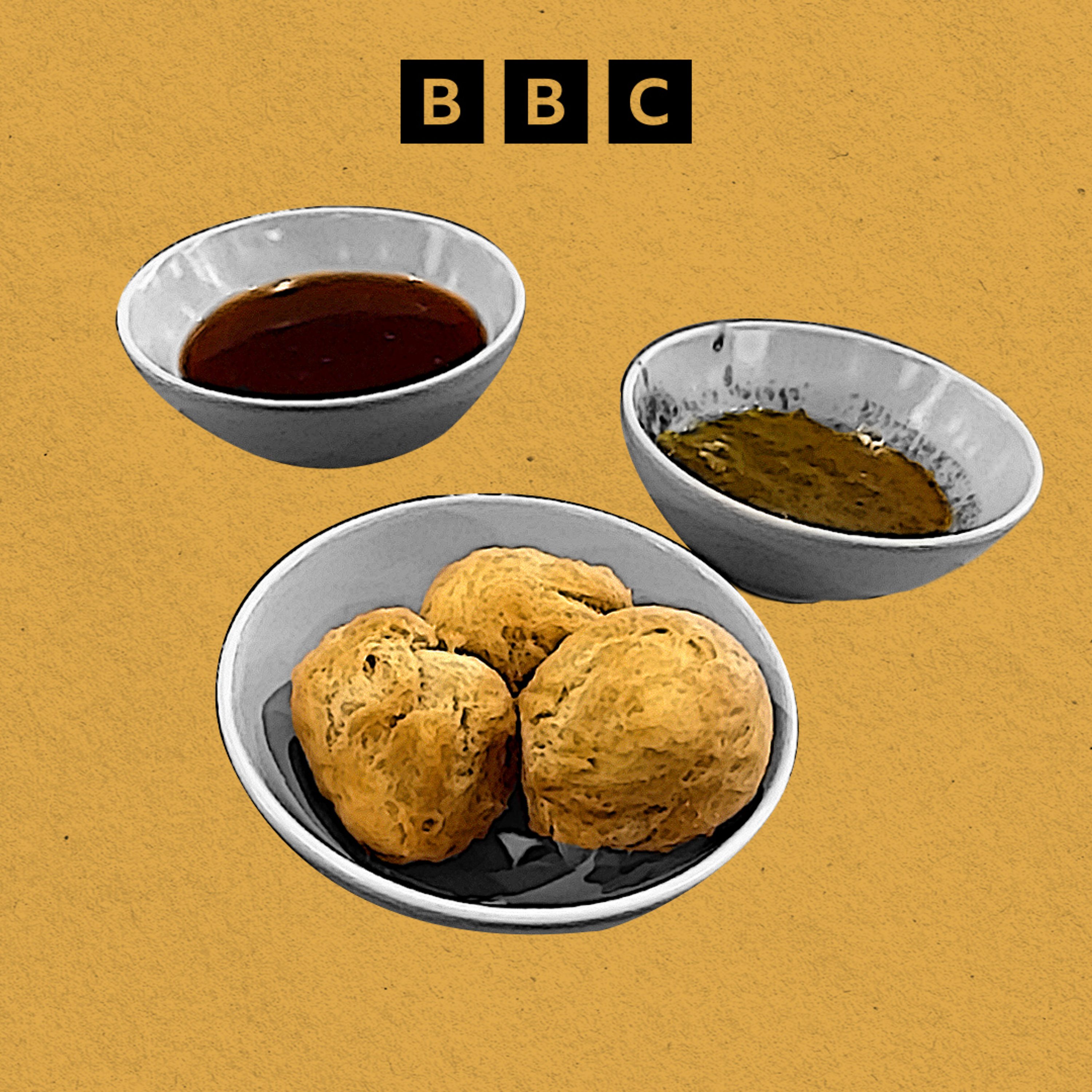
Why we love dumplings
Dumplings feature prominently in cuisines around the world. Some, like the Ghanaian kenkey, or the Irish dumpling, are balls of dough. But in many countries they’re filled with other ingredients. From the Russian pelmeni, to the Japanese gyoza, for centuries we’ve been putting meat, vegetables or cheese in small pouches of pastry, and making delicious snacks. So where did this idea originate? And are all these differently named dumplings connected?Ruth Alexander explores the history of this humble comfort food and hears how different dumplings are made. If you would like to get in touch with the programme, email [email protected]. Presenter: Ruth Alexander.
Producers: Julia Paul and Rumella Dasgupta
(Image: Dumplings and bowls of dipping sauce. Credit: BBC)
27:2814/03/2024
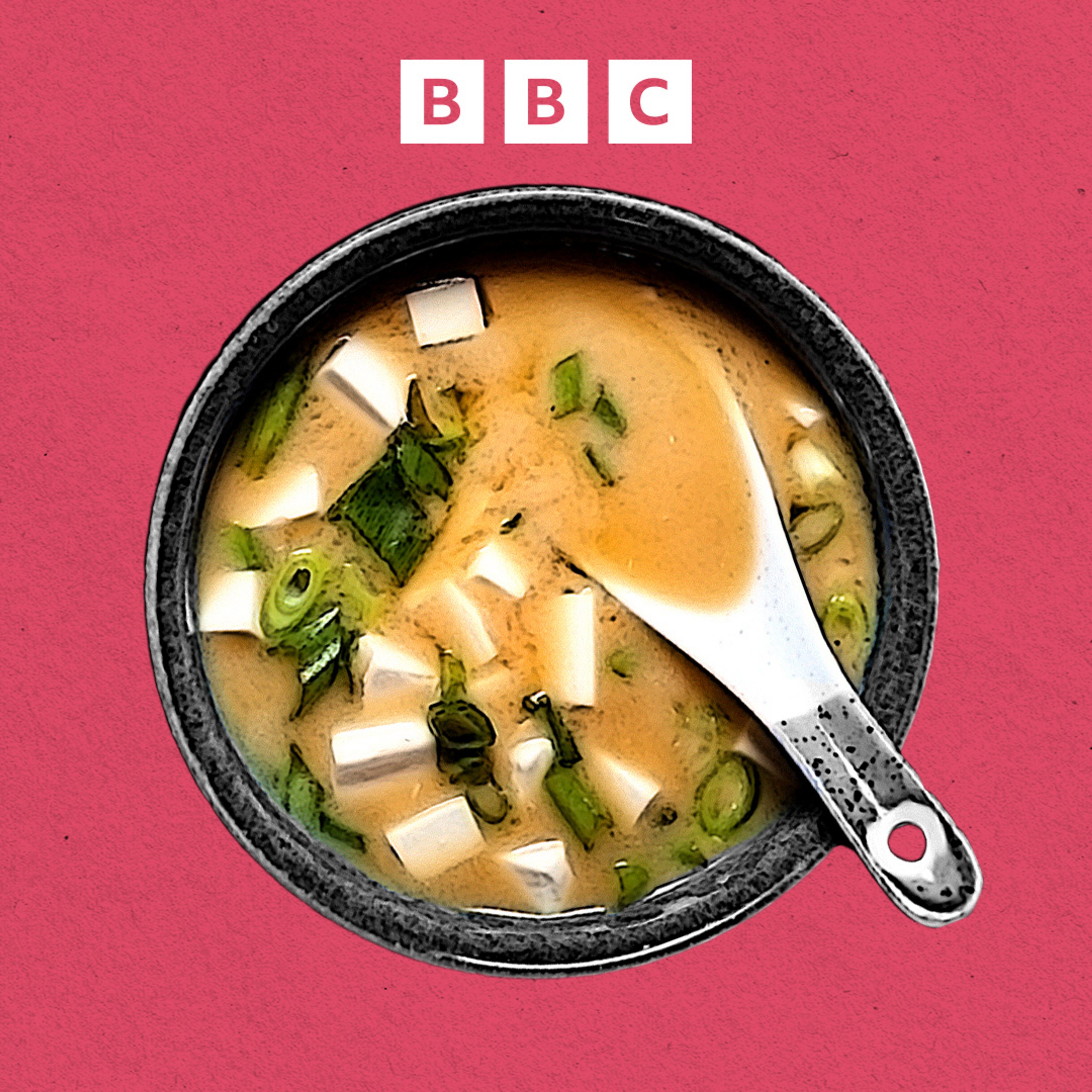
The fifth taste
Sweet, sour, salty, bitter and... umami. Have you heard of the fifth taste? Umami, meaning ‘delicious flavour’ in Japanese, was discovered by a chemist in Japan in 1908 but it took nearly 100 years for it to be recognised as a fifth distinct taste. It is described by many as a savoury or meaty taste. In this programme Ruth Alexander learns about the chemist who first discovered umami, and the industrially produced version he created – monosodium glutamate, or MSG. It’s a food additive that’s been the subject of health scares, but today it’s one of the most tested additives in our food and considered to be safe for consumption. Yukari Sakamoto, trained chef and food tour leader in Tokyo explains how umami features in Japanese cuisine; she says miso soup is one of the best examples of maximum umami flavour. Professor Barry Smith, Director of the Centre for the Study of the Senses in the UK, explains the science behind umami and MSG. Calvin Eng, chef and owner of Bonnie’s restaurant in Brooklyn New York, is one of a number of chefs trying to rehabilitate MSG’s reputation – he uses it not just in savoury dishes, but also desserts and drinks. If you would like to get in touch with the show, please email: [email protected] Presented by Ruth Alexander. Produced by Beatrice Pickup. (Image: a bowl of miso soup, containing tofu and spring onions. Credit: Getty Images/BBC)
30:0307/03/2024
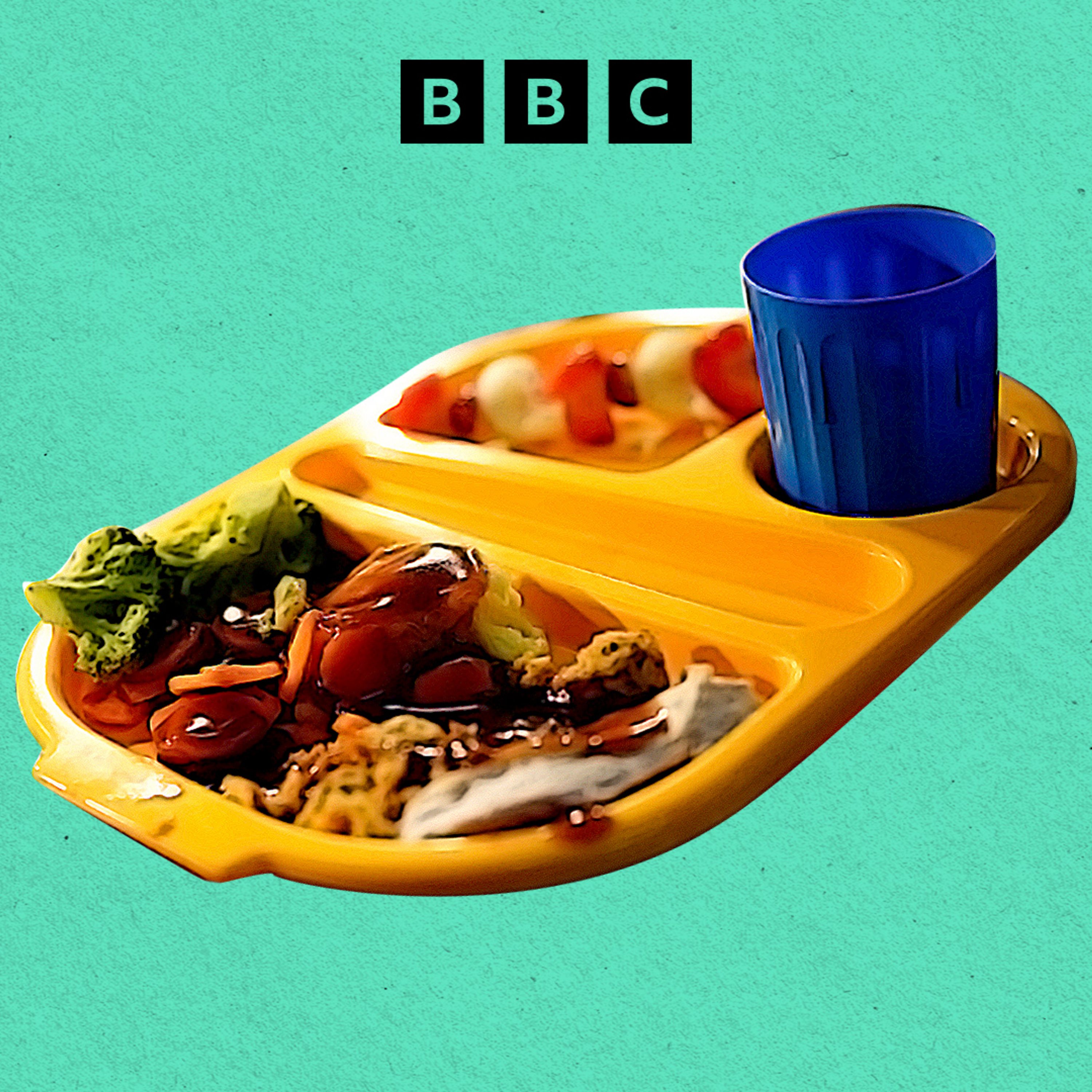
The school cooks
Three school chefs tell Ruth Alexander what it’s like serving up canteen food every day. Find out how they manage hundreds of hungry child customers, what pro tips they have for making vegetables seem delicious, and why they all find the job so satisfying. We hear from the USA, Liverpool in the UK and a school chef in the far north of Finland about the challenges of cooking mountains of meatballs, how to cope when the vegetable biriyani goes all over the ceiling, and why it’s one of the most rewarding – but probably overlooked – professions. If you would like to get in touch with the show, please email: [email protected] Producers: Hannah Bewley and Rumella Dasgupta (Image: a plastic lunch tray with meat, vegetables and gravy, fruit and a plastic cup. Credit: Getty Images/BBC)
27:1229/02/2024
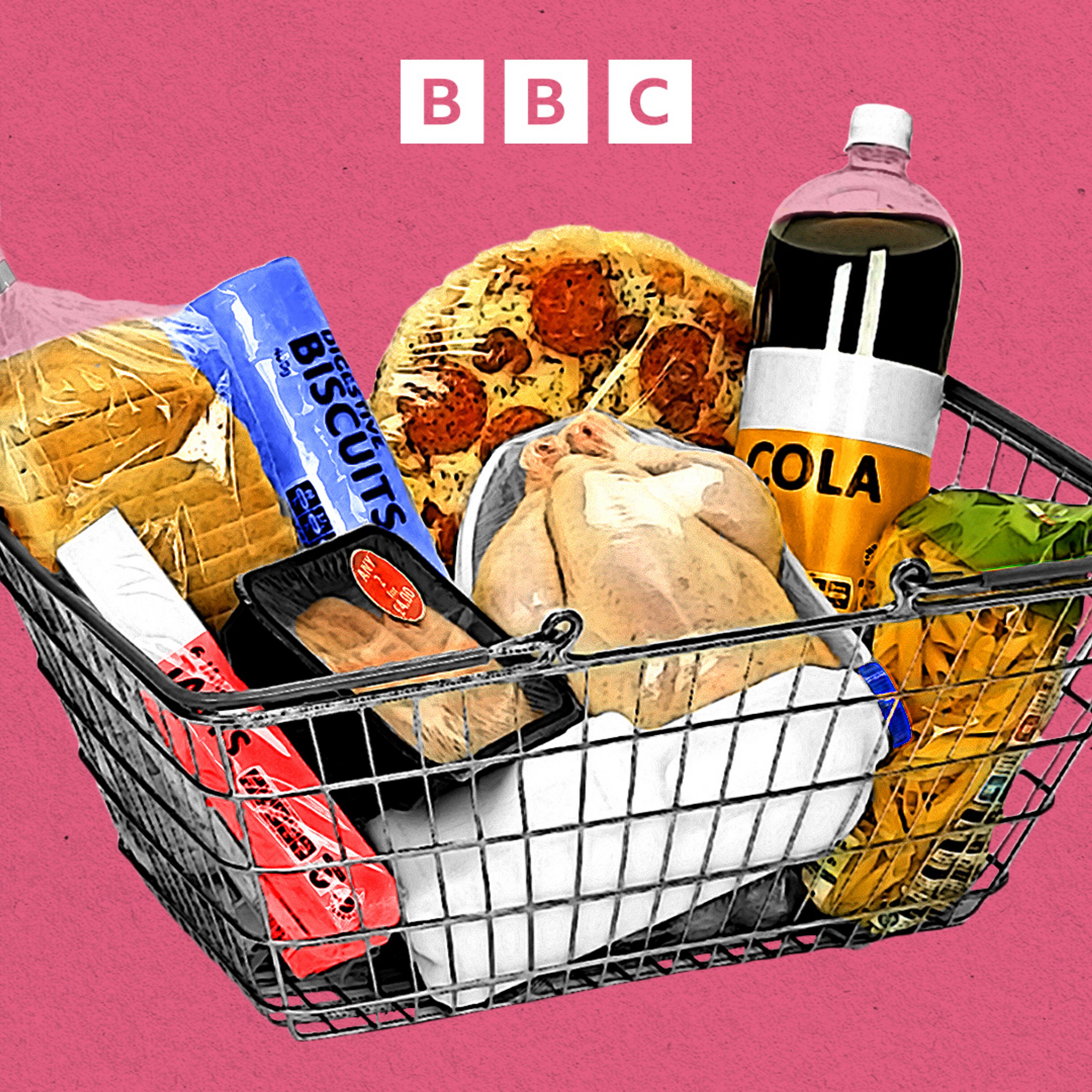
Is this ultra processed?
Have you heard of ultra processed food? In 2010 a group of Brazilian scientists said we should be focusing less on the nutritional content of food, and more on the form of processing it undergoes. They created the Nova system, a way of categorising foods based on how processed they are. It identifies ultra processed foods as generally industrially manufactured, containing ingredients such as emulsifiers, stabilisers and other additives that would not be found in an average home kitchen. A growing body of scientific research suggests a link between this category of ultra processed foods and ill health, although there’s still some uncertainty around why this could be. In this programme we look at what ultra processed food is, how you spot it, and how practical it is to avoid it, should you wish to. Ruth Alexander speaks to listener Jen Sherman in California who is trying to reduce the amount of ultra processed food her family eats. Ruth also hears from one of the public health scientists behind the Nova classification, Jean-Claude Moubarac at the University of Montreal in Canada, and from Pierre Slamich, co-founder of the Open Food Facts app and website, a database of foods that can help you identify products that are ultra processed. Kate Halliwell, Chief Scientific Officer at the Food and Drink Federation in the UK, which represents manufacturers, says evidence of harm from ultra processed foods is not yet strong enough. If you’d like to contact the programme you can email [email protected]. Presented by Ruth Alexander. Produced by Beatrice Pickup. Additional reporting by Jane Chambers in Chile.
33:1622/02/2024
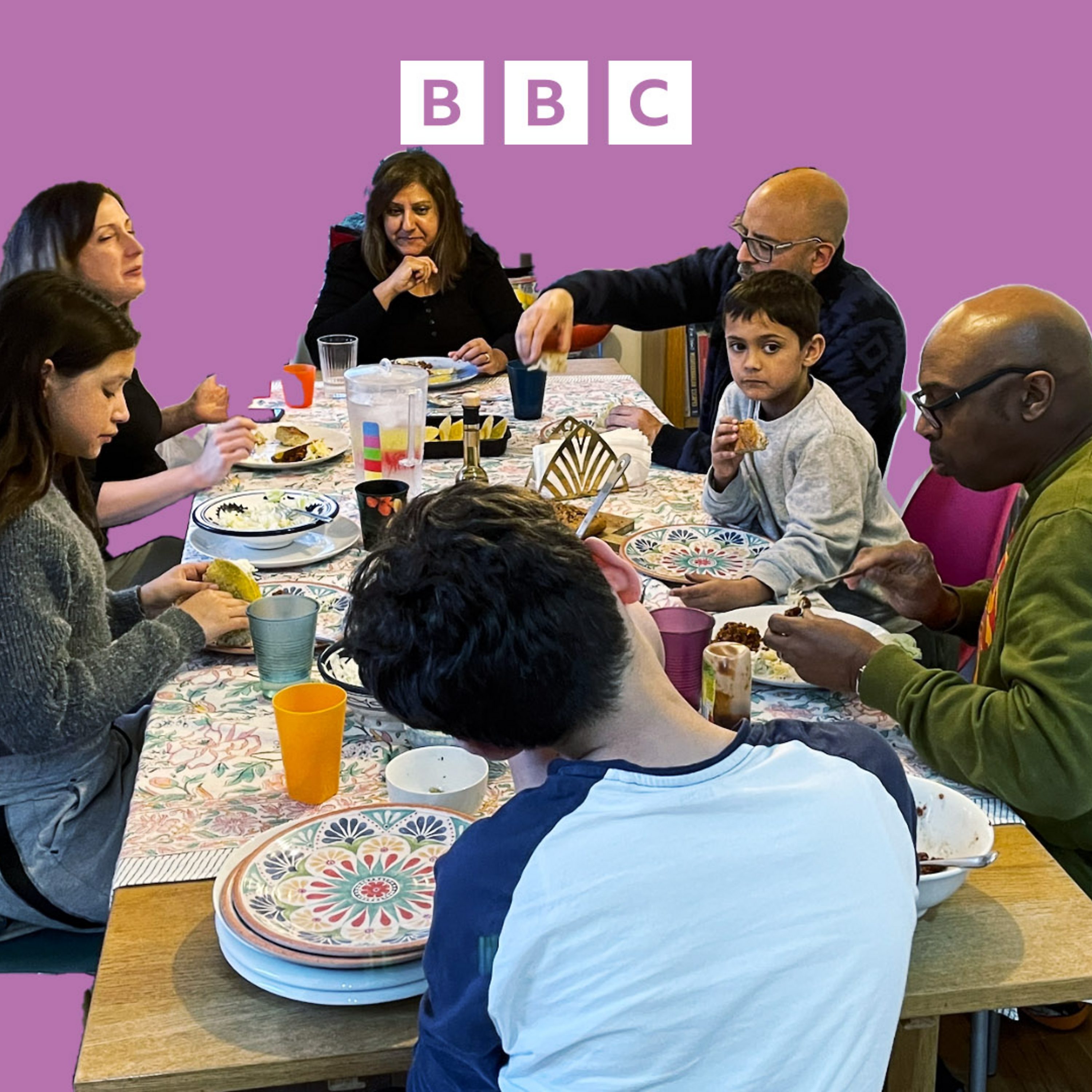
Table talk
What do you and your family chat about at dinner? We eavesdrop on conversations over food all over the world, hearing about poetry, politics, what is on TV and how Morag’s leg is recovering. Whether you gossip or have more philosophical debates find out how integral good communication is while we are eating, often marking the only point in the day or week when a family gathers together. We learn why a matchmaker thinks a dinner date might not be such a good idea after all if you want the conversation to flow. And, psychotherapist Philippa Perry tells us how to keep the peace with the family over Sunday lunch. Presenter: Ruth Alexander
Producer: Hannah Bewley and Rumella Dasgupta If you would like to get in touch with the show, please email: [email protected] (Image: Family and friends sit around the dinner table. Credit: BBC)
27:1815/02/2024
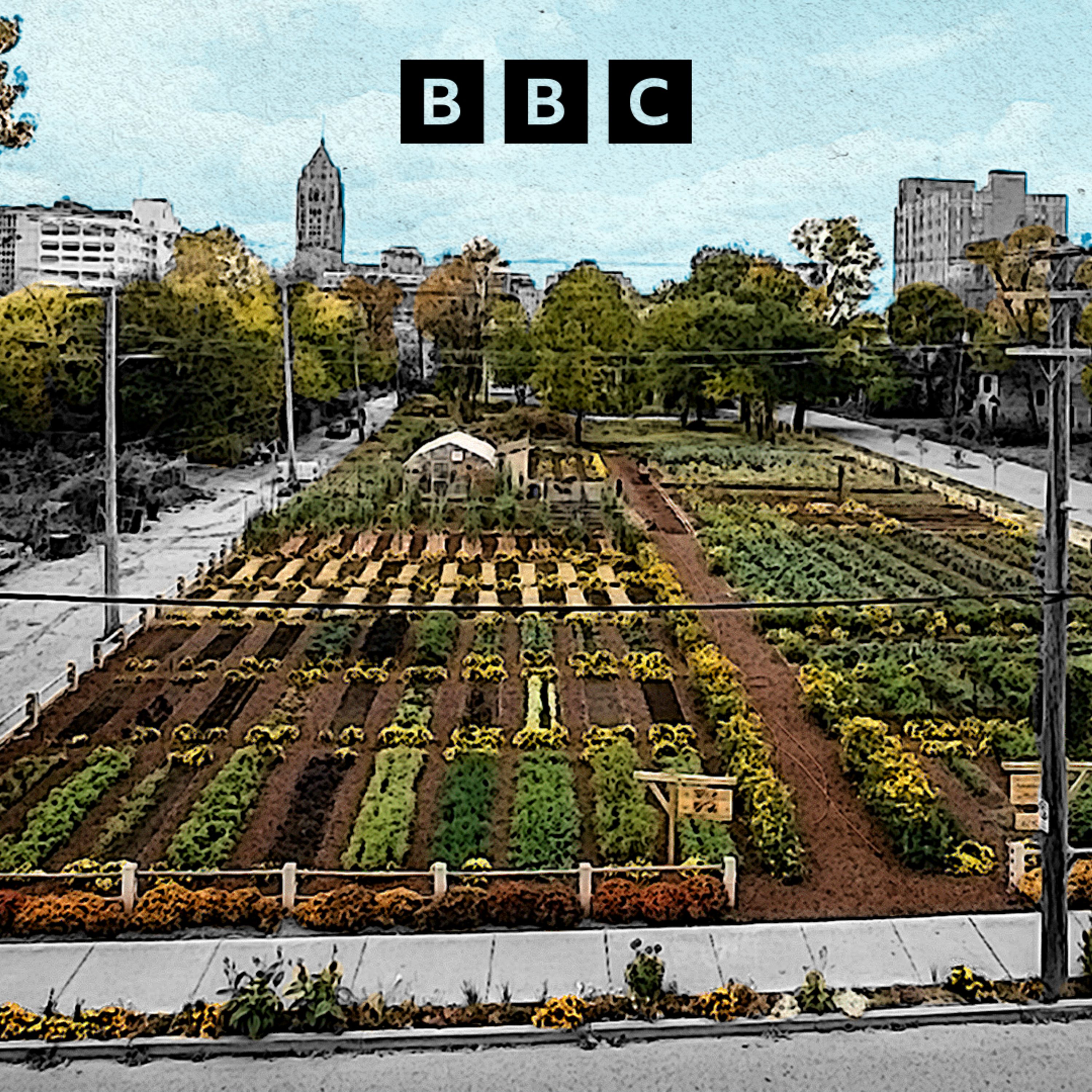
Detroit's urban farmers
The city of Detroit in the United States has a lot of vacant space – as much as a quarter of residential, commercial and industrial sites lie unused today. In this programme Ruth Alexander meets the people who are growing food in their neighbourhoods, creating urban farms and community gardens where houses once stood. Mark Covington is the founder of Georgia Street Community Collective, and Tyson Gersh is the co-founder of the Michigan Urban Farming Initiative. Ruth learns why so much land stands empty from the city’s official historian Jamon Jordan. Jamon explains the role of the automobile industry in bringing jobs and people to Detroit in the early 1900s, and the circumstances that led to decades of population decline, job losses and debt for the city government, culminating in bankruptcy in 2013. Tepfirah Rushdan is the newly appointed, first Director of Urban Agriculture for the city of Detroit. She explains how she hopes to bring urban farmers and politicians together to find a way for food to be grown alongside new developments as investment returns to the city. If you’d like to contact the programme you can email [email protected] Presented by Ruth Alexander. Produced by Beatrice Pickup. (Image: the Michigan Urban Farming Initiative a farm in downtown Detroit, surrounded by roads and buildings. Credit: Michelle and Chris Gerard/BBC)
31:4408/02/2024
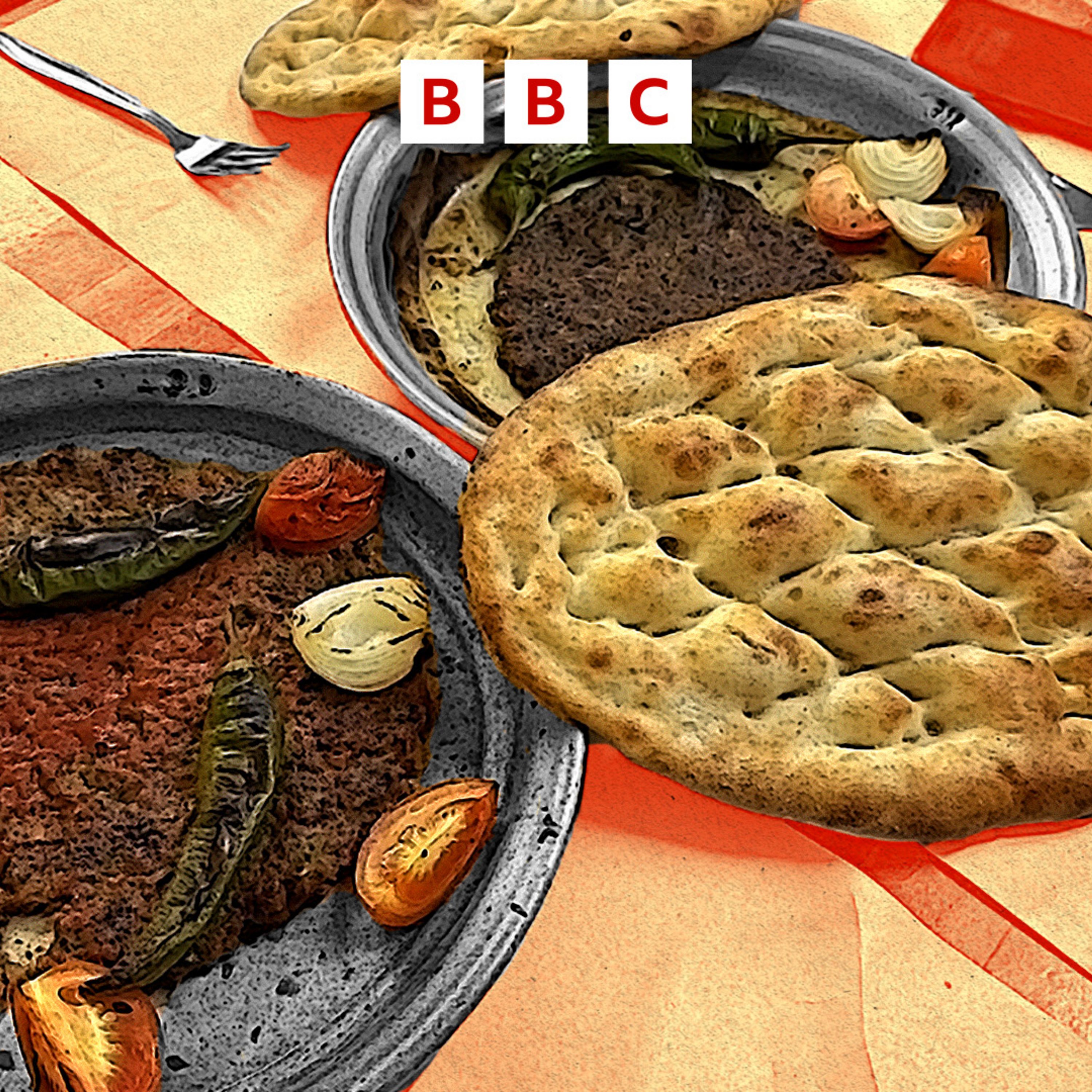
Rebuilding Turkey’s food culture
In February 2023, two earthquakes devastated parts of Turkey. The disaster claimed the lives of nearly 60,000 people in southern Turkey and northern Syria. In this programme Victoria Craig travels to the city of Antakya, part of Hatay Province, close to the border with Syria. It’s a region long famed for its cuisine, and even has special UNESCO recognition for its gastronomy. Since the earthquake a year ago much of the local population has left the badly damaged area, and food businesses in the historic bazaar are waiting for rebuilding work to begin. Victoria hears from the people of Antakya why food is such an important part of their culture and community. Produced and presented by Victoria Craig. If you'd like to contact the programme, you can email [email protected].(Image: tray kebab from the bazaar in Antakya. Credit: Victoria Craig/BBC)
27:0701/02/2024
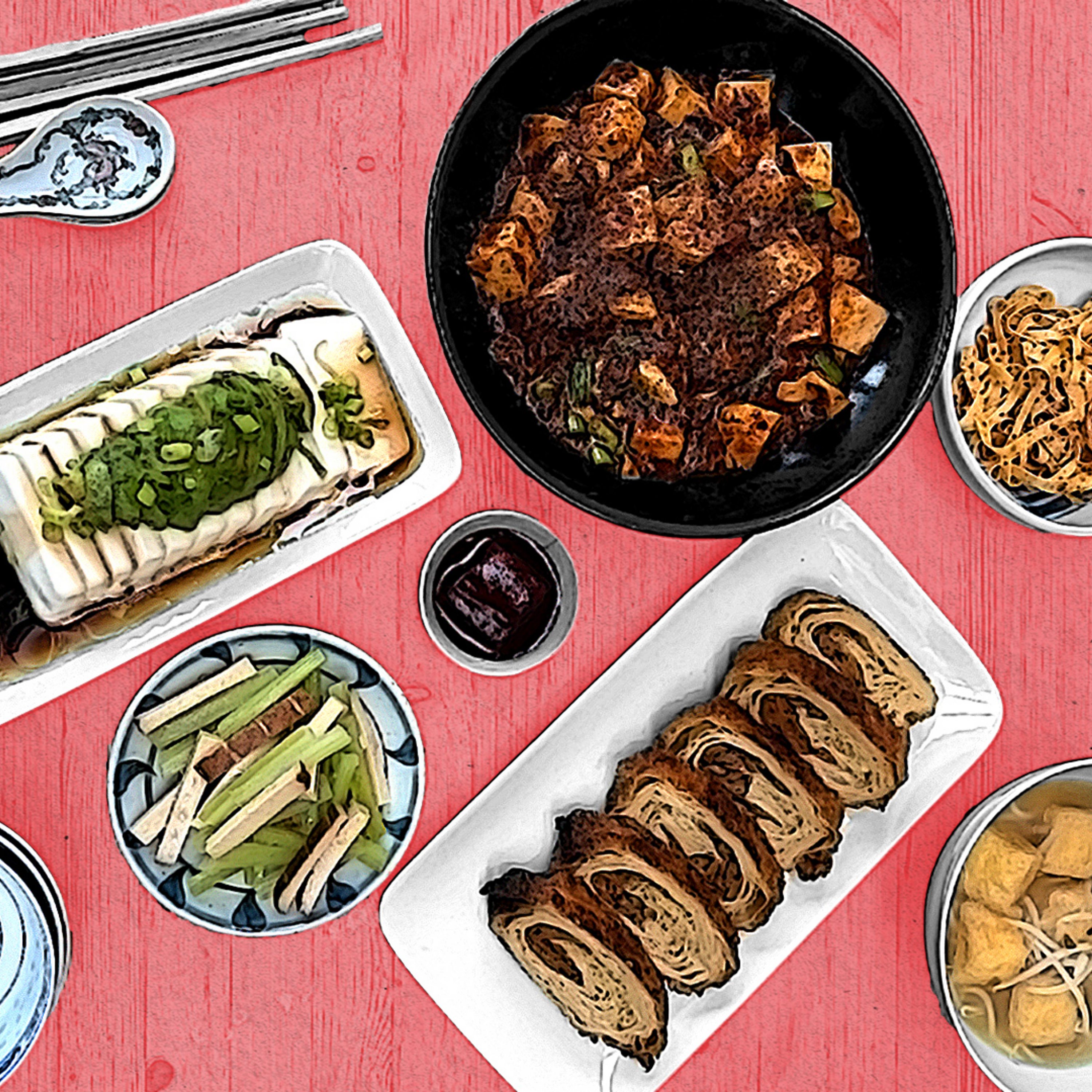
Is Chinese food the best in the world?
Chinese food is popular and successful around the world. But is it afforded the respect it deserves? In some countries Chinese food has been seen as something tasty, but ultimately cheap and not very healthy, despite it being a cuisine with a focus on health, seasonality and gastronomic skill for centuries. In this programme Ruth Alexander meets Fuchsia Dunlop, a British food writer who has spent a career studying Chinese cuisine. She argues that the food has long been undervalued in the West, and it’s time for that to change. Ruth also meets chef Andrew Wong, whose restaurant A.Wong in London holds two Michelin stars, the first Chinese restaurant outside of Asia to receive that accolade. A.Wong operates on the same site as Andrew’s parents’ Chinese restaurant in the 1980s and he talks about how the business, and Chinese food in the UK, has evolved. And she hears from Rica Leon, CEO of ‘Chifa’, a restaurant in LA that celebrates her family’s Chinese and Peruvian heritage. Rica explains how Chinese flavours and ingredients have influenced Peruvian food. If you’d like to contact the programme, you can email the [email protected] Presented by Ruth Alexander. Produced by Beatrice Pickup. (Image: A table of tofu dishes prepared by Fuchsia Dunlop, including mapo tofu, smoked tofu salad, shredded tofu leather, silken tofu with avocado, an imitation roast duck dish made from layers of tofu, and deep fried tofu served in a soup. Credit: Fuchsia Dunlop/BBC)
30:4725/01/2024
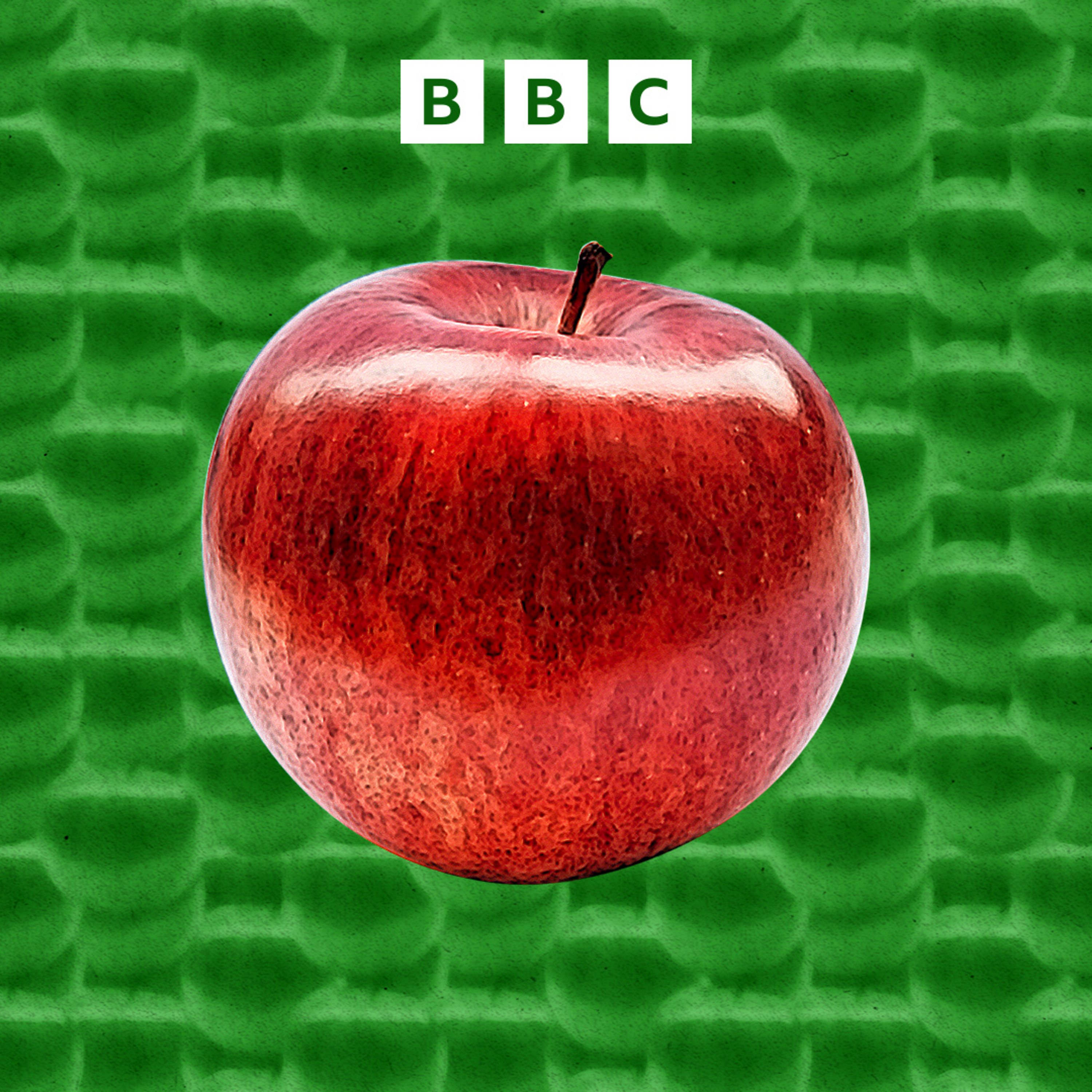
How to invent an apple
Have you ever wondered why the apple you bite in to is so crisp and juicy? And why it’s available all year round? Apples originated in the mountains of Central Asia, and made their way along trade routes to Europe and then on to the rest of the world. They are now one of the most widely consumed fruit worldwide. An apple seed will produce a completely different fruit to the tree it came from – so new varieties have to be bred and cultivated. In this week’s episode Ruth Alexander finds out about the science behind finding that perfect crunch, how long it takes to be able to taste an apple you’ve spent years planning and how to grab consumers’ attention with a new breed. Ruth also visits a wassail near Manchester in England to experience an ancient tradition involving cider, hanging toast on a tree and lots of singing to encourage a good apple harvest for the year ahead. If you would like to get in touch with the show, please email: [email protected]: Ruth AlexanderProducer: Hannah Bewley(Image: A bright red apple on a green background. Credit: Getty Images)
27:3218/01/2024
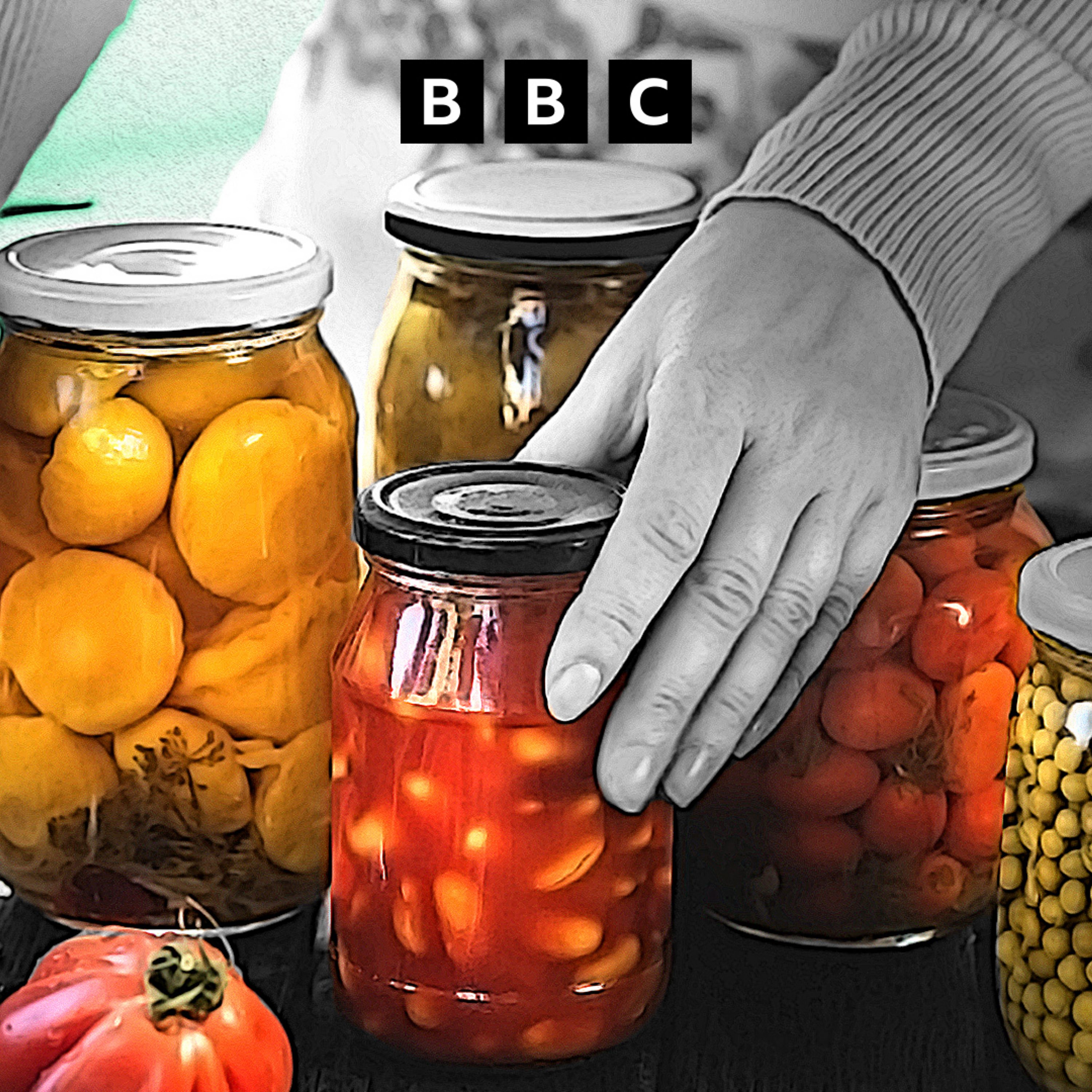
The preservers
Humans have preserved food to make it last longer for thousands of years. In this programme Ruth Alexander learns about different methods of food preservation used around the world, including pickling, dehydrating and canning. Food historian and writer Darra Goldstein in the US explains the history of this art. Yukari Sakamoto is a trained chef and sommelier who leads food tours in Tokyo, she explains why people in Japan take the idea of a well stocked pantry seriously. And Usha Prabakaran in Chennai, India talks about her love of the Indian pickle and its role in Indian cuisine. There are some important safety considerations if you want food to last longer, particularly if you want to store it at room temperature. There is a risk of botulism if food is not heated to the correct temperature for the correct amount of time, particularly for foods that are low in acid. Ruth hears about the laboratory testing done by Carla Schwan, Director at the National Home Food Preservation Centre based in Georgia, United States which tests recipes that can be used safely for home preserves. Canning – storing food in glass jars and heating it – has seen a resurgence recently. Some enthusiasts refer to themselves as ‘rebel canners’, which in general refers to people wanting to use recipes other than those that have been lab tested and approved. The ‘Canning Diva’, Diane Devereaux a food preservation educator and blogger in the United States explains what motivates rebel canners, and the recipes she thinks are missing for consumers. If you’d like to contact the programme, you can email [email protected]. Presented by Ruth Alexander. Produced by Beatrice Pickup. (Image: a selection of foods preserved in jars of different shapes and sizes. Credit: Getty Images/BBC)
32:2311/01/2024
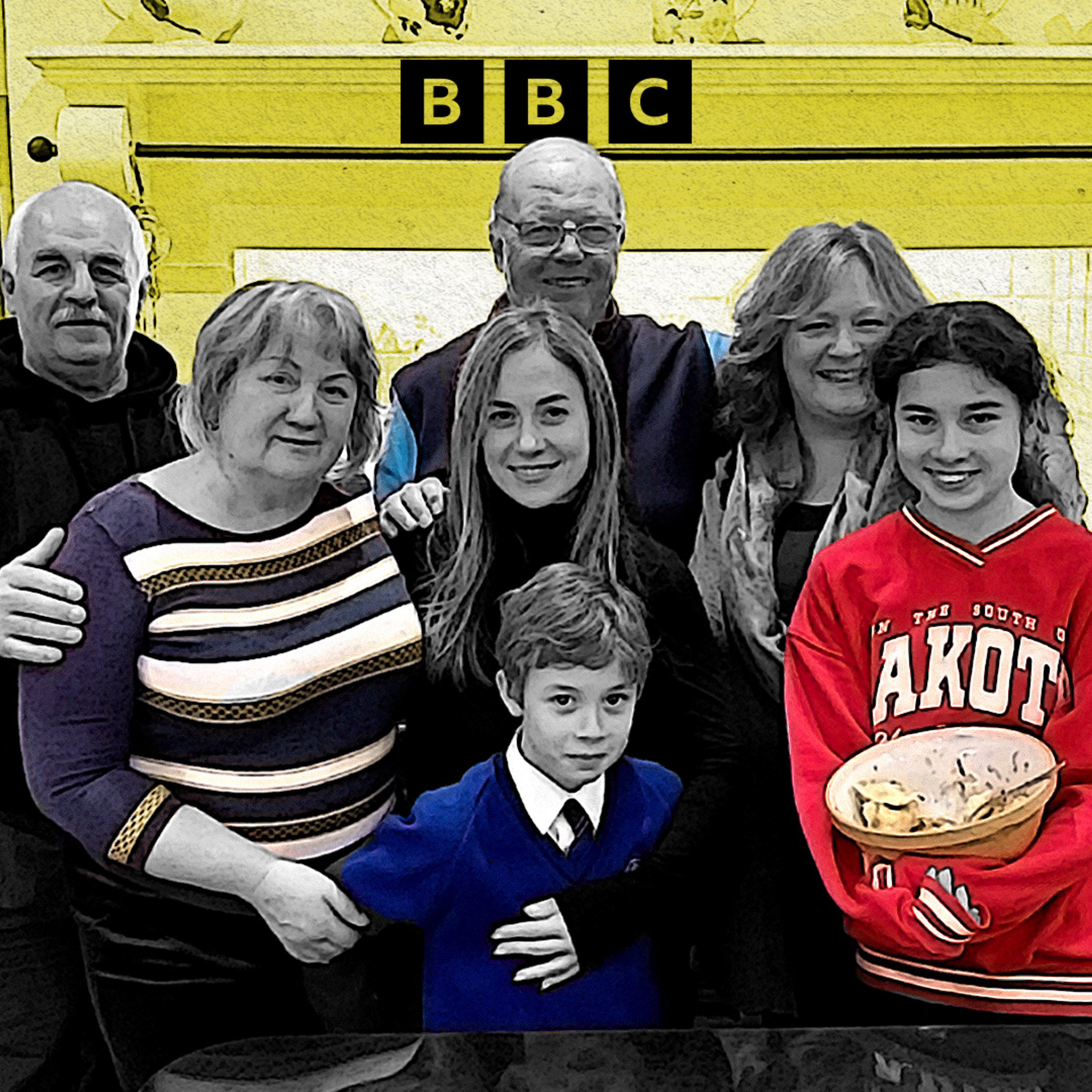
Another year away from home
Ruth Alexander talks to two families displaced by the war in Ukraine, as they reflect on their second year away from home. They discuss the difficulties of being away from loved ones and the solace home cooking can provide. Ruth speaks to Natalia Lomonosova, who’d had to flee her home in Kyiv with her teenage daughter and has set up a new life in Berlin, Germany; and she visits Mariya Dmytrenko and her family, who are living with their hosts Brian and Julie Lamb, in Blackburn, England. If you’d like to contact the programme, please email [email protected]. Producer: Beatrice Pickup (Image: Mariya Dmytrenko and family with their hosts Brian and Julie Lamb. Credit: BBC)
27:0228/12/2023
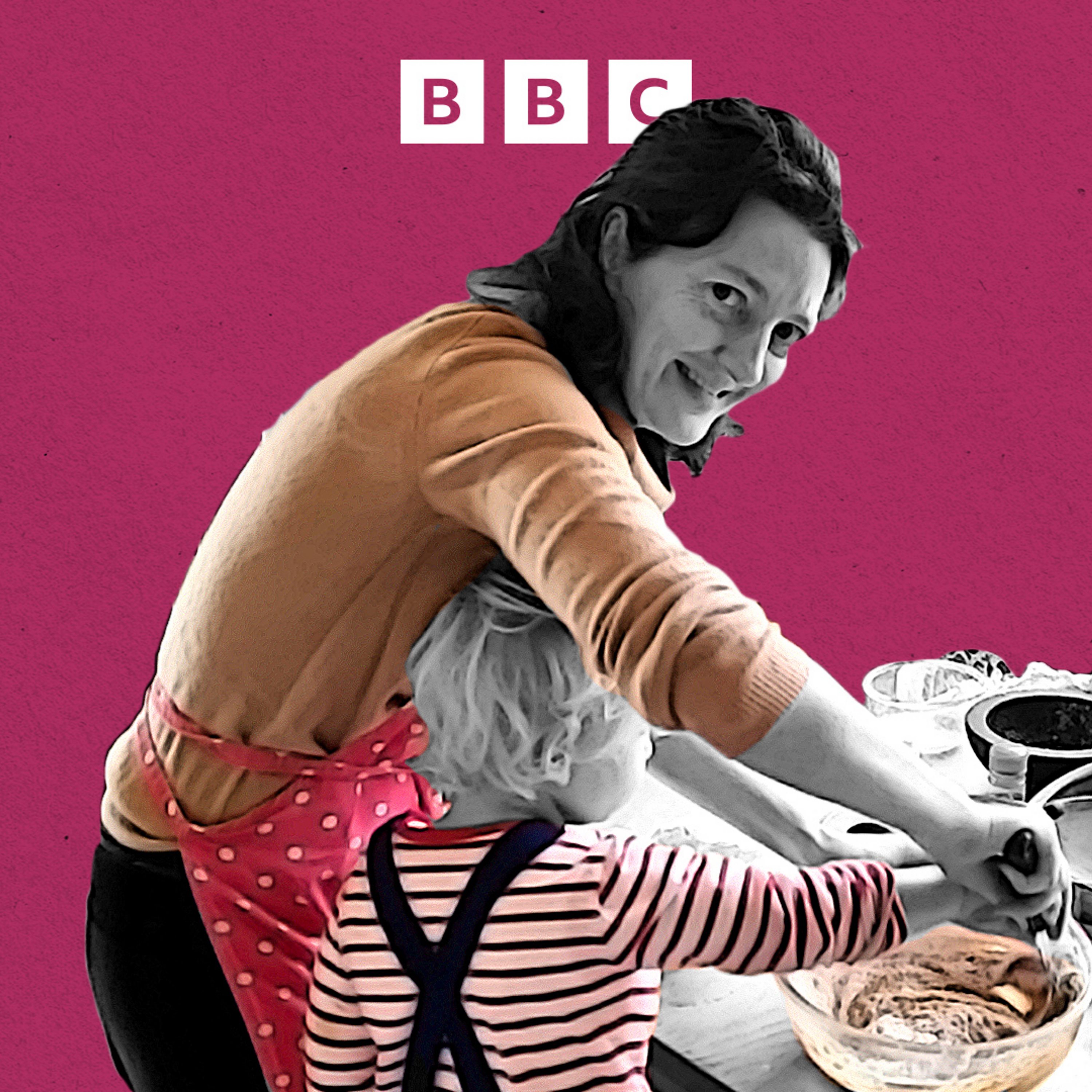
Festive food stories
We take a trip around the world with BBC World Service presenters and listeners, finding out which are their favourite foods when a celebration is in order. A porridge which is hidden around the house to ward off spirits, sweet and delicious pilau shared with neighbours and an ornate box filled with as many as 50 types of food in Japan – we hear about what’s on the menu at this time of year. Ruth Alexander has help from her enthusiastic three-year-old son to make a traditional Christmas cake for the first time and BBC World Service business presenter Devina Gupta gets stuck washing up after a delicious Diwali feast with her family in Delhi. Producers: Hannah Bewley, Beatrice Pickup and Rumella Dasgupta Image: Ruth and her son making Christmas cake, Credit: BBC If you would like to get in touch with the show, please email: [email protected]
29:5121/12/2023
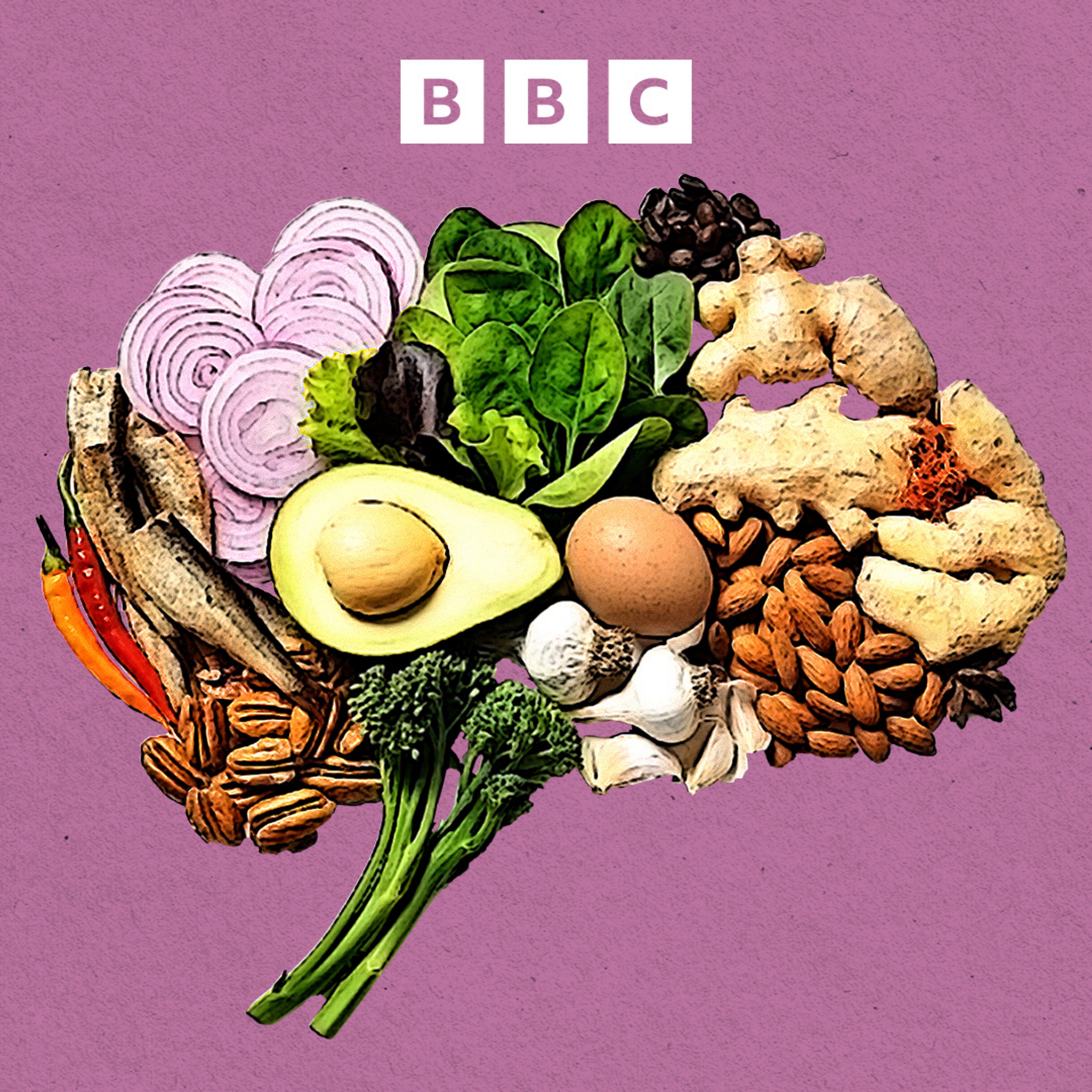
Feed your brain
Our brains require 20% of our body’s energy intake, despite making up, on average, only 2% of our body weight. There are nutrients that are needed for brain health and development, yet many of us don’t think about specifically eating for our brains. In this programme Ruth Alexander learns about the relationship between our gut and our brain, and the impact food can have on your alertness, mood and memory. And just why oily fish, and other foods containing omega 3 fatty acids are so good for your brain. Ruth speaks to Dr Reeta Achari, a neurologist specialising in nutrition in Texas, United States and Dr Uma Naidoo a nutritional psychiatrist and author of ‘Calm Your Mind With Food’, in Massachusetts, United States. They are joined by Michelle Munt in the United Kingdom, whose blog ‘Jumbled Brain’ talks about recovering from a brain injury following a car accident in 2014. Presented by Ruth Alexander. Produced by Julia Paul and Beatrice Pickup. (Image: a selection of foods collected in the shape of a brain. Credit: Getty Images/BBC)
27:0814/12/2023
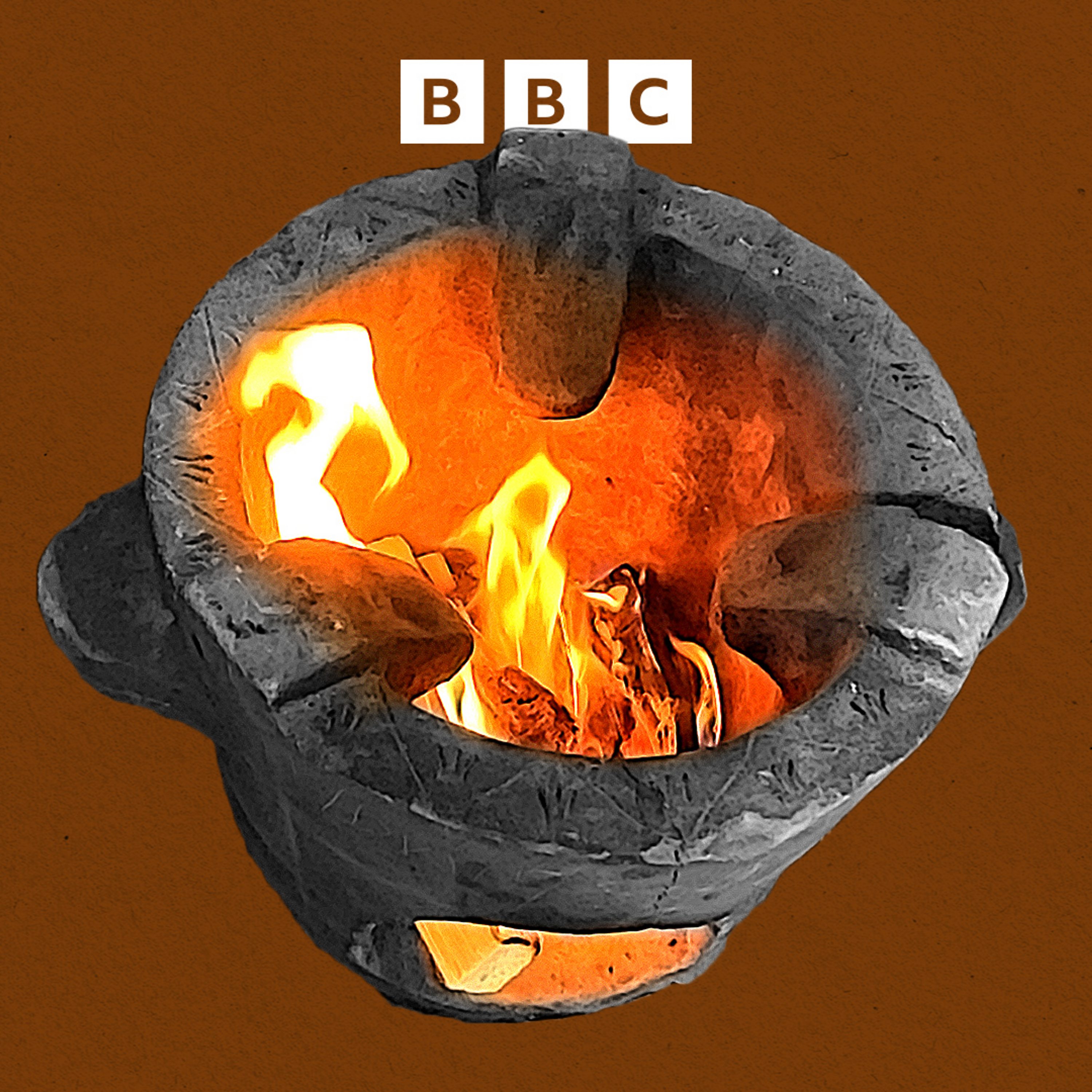
How to stop cooking killing
It’s estimated that more than 2 billion people use polluting stoves - with severe consequences for their health. The World Health Organisation says 3.2 million people die each year as a result of the household air pollution they cause. Ruth Alexander finds out why this problem – which also harms the environment – is so difficult to solve. She speaks to Dr Fatih Birol of the International Energy Agency in Paris; Sophie Odupoy from Koko Networks in Kenya; Naramath Lucas Kariongi from the Rural Communities Support Organisation in Tanzania; and Dr Mike Clifford of Nottingham University’s engineering department in the UK. If you would like to get in touch with the show, please email: [email protected]. Producers: Hannah Bewley and Rumella Dasgupta.(Picture: a clay stove with a wood fire lit. Credit: BBC)
27:1007/12/2023

Pesticide exports
Many countries allow the manufacture and export of pesticides that are banned for use in their own countries. Recently France and Belgium have introduced laws preventing the export of such agrochemicals if their use is banned in the European Union. The European Commission is currently considering whether to introduce similar laws. Grace Livingstone reports from Paraguay where some small farmers living near soya plantations say heavy pesticide spraying is affecting their health and livelihoods. We hear from the United Nations Special Rapporteur for Toxics, Marcos Orellana, who says that global pesticide regulations should be tougher. And we speak to Emily Rees of CropLife International, which represents the agrochemical industry, who says different climates and soil conditions require different pesticides. Produced and presented by Grace Livingstone. (Image: a tractor spraying soybean crops. Credit: Getty Images/BBC)
27:1530/11/2023





